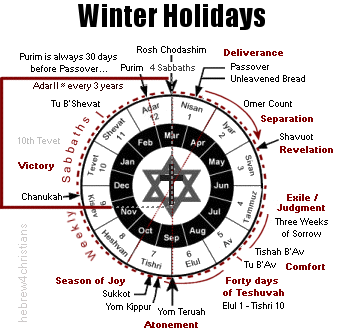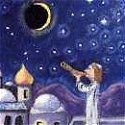|
Jewish Holiday Calendar
For January 2017 site updates, please scroll past this entry....
The winter holidays (חגי החורף) remember special times when God acted on behalf of His people so that they would triumph over their enemies, and therefore they prophetically picture the final victory in the world to come.
The Winter Holidays:
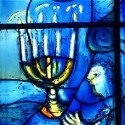
Note that in accordance with tradition, the following holiday dates begin at sundown:
- Month of Tevet (Thurs., Dec. 29th [eve] - Fri. Jan. 27th [day])
- Month of Shevat (Fri., Jan. 27th [eve] - Sat. Feb. 25th [day])
- Month of Adar (Sat., Feb. 25th [eve] - Mon., March 27th [day])
Note: Many Jewish calendars will list the first day of a holiday without indicating that the holiday actually begins sundown the night before. So, for example, while Purim begins Saturday, March 11th at sundown, some calendars may indicate that it occurs on Sunday, March 12th...
January 2017 Updates
Note: If any page content appears to be missing, please refresh the page...
The Great Lamb of God...

[ The following is related to our Torah reading for this week, Parashat Bo... ]
01.31.17 (Shevat 4, 5777) From our Torah portion this week (i.e., parashat Bo) we learn that though God instructed each household to select its own lamb for the Passover, the Torah refers to "the" Lamb of God, as if there was only one: "You shall keep it [i.e., the Passover lamb] until the fourteenth day of this month, when the whole assembly of the congregation of Israel shall slaughter him (אתוֹ) at twilight (Exod. 12:6). Note that the direct object "him" (i.e., oto) can be read as Aleph-Tav (את) combined with the letter Vav (ו), signifying the Son of Man who is First and Last... Indeed there is only one "Lamb of God" that takes away the sins of the world, and that is our Savior, Yeshua the Messiah...
רָאוּי הַשֶּׂה הַטָּבוּחַ לְקַבֵּל גְבוּרָה
עשֶׁר וְחָכְמָה וְכּחַ וִיקַר וְכָבוֹד וּבְרָכָה
ra·uy · ha·seh · ha·ta·vu·ach · le·ka·bel · ge·vu·rah
o·sher · ve·chokh·mah · ve·ko·ach · vi·kar · ve·kha·vod · uv·ra·kha

"Worthy is the Lamb who was slain, to receive power and wealth and wisdom
and might and honor and glory and blessing"
(Rev. 5:12)
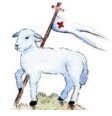
Hebrew Study Card
The Torah of Passover...
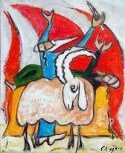
[ The following is related to our Torah reading for this week, Parashat Bo... ]
01.31.17 (Shevat 4, 5777) The very first occurrence of the word "Torah" in the Scriptures refers to the faith of Abraham (Gen. 26:5), and the second occurrence refers to the law of Passover: "There shall be one law (תּוֹרָה) for the native and for the stranger who sojourns among you" (Exod. 12:49). There is a link here. Abraham lived before the time of the Exodus, of course, and therefore he obeyed the Torah of Passover by means of the Akedah (the sacrifice of his beloved son Isaac and the substitution of the lamb of God upon the altar). Abraham's faith revealed that the inner meaning of Torah is that the "righteous shall live by faith" (Hab. 2:4, Rom. 1:17), that is, by trusting God's justification of the sinner (Heb. 11:17-19). The Torah of Passover likewise teaches that redemption from death is possible through the exchange of an innocent sacrificial victim. The blood of the lamb was "a sign" of imputed righteousness obtained entirely by faith - with no "leaven," or human works, added. This is the "korban" principle of "life-for-life" that underlies the sacrificial system of the Tabernacle as well. Ultimately all true Torah points to Yeshua, the Lamb of God, who is the divinely appointed Redeemer and promised Slayer of the Serpent...
"When the fullness of time (τὸ πλήρωμα τοῦ χρόνου) had come, God sent forth his Son, born of woman, born under the Torah, to redeem those who were under the Torah, so that we might receive adoption as sons" (Gal. 4:4-5).
As the Days of Noah...

01.31.17 (Shevat 4, 5777) "For as were the Days of Noah (ימֵי נחַ), so will be the coming of the Son of Man. For as in those days before the flood they were eating and drinking, marrying and giving in marriage, until the day when Noah entered the ark, and they were unaware until the flood came and swept them all away (οὐκ ἔγνωσαν ἕως ἦλθεν ὁ κατακλυσμὸς καὶ ἦρεν ἅπαντας). Likewise, just as it was in the days of Lot - they were eating and drinking, buying and selling, planting and building, but on the day when Lot went out from Sodom, fire and sulfur rained from heaven and destroyed them all - so will it be on the day when the Son of Man is revealed" (Matt. 24:38-9; Luke 17:28-30).
So what were these "Days of Noah" like? What can we say about dor Ha-Mabul, the "Generation of the Flood"? Yeshua explained that the "days of Noah" were marked by people who were asleep, blind, and unaware (ἔγνωσαν, "agnostic"). They went about their business willfully ignorant of the spiritual reality around them. For ten consecutive generations -- from the creation of Adam until the generation of Noah -- people progressively became more and more ignorant of spiritual reality and truth. Eating and drinking, romantic intrigue and marriage, buying and selling, and other worldly affairs were the preoccupations of the day. In short, people lived their lives oblivious to the spiritual reality all around them. They "forgot" who God was, who they were, why they existed, and where they were going. In short, they were "unaware."
The deadening effects of sin leads to moral and spiritual blindness that leads to corruption and unthinking brutality and violence. Of Noah's generation it was written that "the whole earth was corrupt before God, and filled with violence" (Gen. 6:11). Rashi understood the word "corruption" (shachat) to primarily refer to sexual immorality (i.e., idolatry) and "violence" (chamas) to primarily refer to theft and robbery. In general, however, the sages regarded the word chamas to refer to lawlessness, that is the denial of Torah, and consequently the benighted condition of living without yirat ha-shamayim (awe of heaven). When people are spiritually dead, they are unconscious of the wonder of God; oblivious to what is real; and they are consequently debased into animals...
לִישׁוּעָתְךָ קִוִּיתִי יְהוָה
קִוִּיתִי יְהוָה לִישׁוּעָתְךָ
יְהוָה לִישׁוּעָתְךָ קִוִּיתִי
li·shu·a·te·kha · kiv·vi·ti · Adonai
kiv·vi·ti · Adonai · li·shu·a·te·kha
Adonai · li·shu·a·te·kha · kiv·vi·ti
"For your salvation I wait, O LORD.
I wait, O LORD, for your salvation.
O LORD, for your salvation I wait."
(Gen. 49:18)
Disregarding truth cheapens and impairs a sense of self, causing disintegration of spiritual life and depersonalization of others. As humanity becomes more and more fractured and stupefied, God's "like for like" judgment will result in "giving them over" (paradidomi) to the lusts of their hearts (Rom. 1:26). The final verdict of this practiced chamas (lawlessness) is the bestowal of a "depraved mind" (αδοκιμον νουν), a condition of being fundamentally unable to reason properly at all. Since truth is essentially (and necessarily) grounded in a sense of value, and value is a function of conscience, a depraved mind is literally insane from a spiritual perspective... People devoid of conscience are unable to reason along the lines of ethical truth at all, and this is the inner hell of their relativism and denial of transcendental truth. Moral anarchy promotes a cultural collusion to suppress the truth, to silence the truth-tellers, to kill the prophets, and to gag advocates for justice. Lawlessness squelches the inward voice of right and wrong within the human heart. Tragically, this is the state of our world today.... "The LORD sees that the wickedness of man is great in the earth (וַיַּרְא יְהוָה כִּי רַבָּה רָעַת הָאָדָם בָּאָרֶץ), and that every intention of the thoughts of his heart is only evil continually" (Gen. 6:5). We are living as in the Days of Noah.
Retelling the Story...
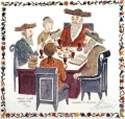
[ The following is related to our Torah reading for this week, Parashat Bo... ]
01.30.17 (Shevat 3, 5777) In our Torah reading for this week we are commanded to retell "in the hearing of your son and your grandson" how the LORD dealt harshly (הִתְעַלַּלְתִּי) with the Egyptians and performed great wonders to deliver us, so that you may know that I am the LORD" (Exod. 10:2). This commandment is the basis of the Passover haggadah (i.e., הַגָּדָה, "telling"), the "oral tradition" of our faith, when we personally retell the story from generation to generation so that the spirit of the message is not lost. We participate in the seder to make it "our own story," a part of who we are. Therefore b'khol-dor vador: "Every Jew must consider himself to have been personally redeemed from Egypt." Retelling the story of the exodus enables us to "know that I am the LORD" (Exod. 10:2). We recall the words, bishvili nivra ha'olam – "For my sake was this world created," while we also recall the words, anokhi afar ve'efer – "I am but dust and ashes." When we retell the story of the great redemption, we strengthen our faith and better know the LORD.
The LORD admonishes that the story of our redemption should be "as a sign on your hand and as a memorial (זִכָּרוֹן) between your eyes, that the Torah of the LORD may be in your mouth" (Exod. 13:9). We are instructed to "remember" (זָכַר) over and over again because our disease, our sickness of heart, induces us to forget how we were enslaved in the house of bondage. We must consciously remember and never forget that only by means of God's strong hand (בְּיָד חֲזָקָה) are we ever made free (John 8:36).
Exodus and Freedom...
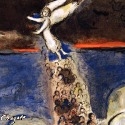
[ The following is related to our Torah reading for this week, Parashat Bo... ]
01.30.17 (Shevat 3, 5777) God's redemption is both "out of" and "into." The LORD takes us out of hell, bondage, and death into heaven, liberty, and eternal life. But note that he takes us out only to bring us back in; he redeems us to bring us to Sinai; he writes Torah upon our hearts; he makes us "in but not of" the world (John 17:15-16). Every Passover we retell the story of our redemption. We remember how we bitterly cried because of our bondage and how God graciously delivered us by the blood of the lamb. We rejoice that we are called am segulah - God's own treasured people. Because of God's love demonstrated at the cross, we are transferred (μεθίστημι) from the realm of darkness into the kingdom of the Divine Presence (Col. 1:13). Today may we live as salt and light to a perverse world, sharing the message of God's great liberation from the power of sin, death, and evil...
Keeping your Focus...

01.30.17 (Shevat 3, 5777) The important thing is to remain focused on what is ultimately real... We do this by learning to pray "without ceasing," which means centering our thoughts and desires in light of the Divine Presence. King David always "set" the LORD before him and he was unmoved in times of testing (Psalm 16:8). To know the truth means choosing before the audience of God's reality, before the holy witnesses of heaven and the sacredness that inheres in all things. We know this truth as we do - as we trust - as we "live, move, and have our being" (Acts 17:28). Most especially we must learn the truth of God's love for our souls in Yeshua, for he is the One who promises never to leave nor forsake us (Heb. 13:5; Deut. 31:6). The Spirit says: "Fear not, for I am with you; be not dismayed, for I am your God; I will strengthen you, I will help you, I will uphold you with my righteous right hand."(Isa. 41:10).
Numbering our Days...

01.30.17 (Shevat 3, 5777) Many people live as if God doesn't exist and that death does not occur. Instead of soberly acknowledging that their days are numbered in this world, they deny the reality of death, living as if the present moment will last forever, steadfastly ignoring any idea of judgment to come. Yeshua warned us, however, that "nothing is hidden except to be made manifest; nor is anything secret except to come to light" (Mark 4:22). We should tremble before such words. Each of us will give account for what we have done with the time given us (Heb. 9:27; 2 Cor. 5:10; Matt. 12:36). Moses therefore prayed to God: "teach us to number our days," that is, help us understand how to make our days count for eternity, to have a "weight of glory" (βάρος δόξης) that will shine in the world to come...
"As for man, his days are as grass. . . the wind passes over him and he is gone" (Psalm 103:15-16). Life goes by so quickly, and we never know when our personal "Rosh Hashanah" will come. "No one knows the day or hour..." That's why it is so vital to be healed and to turn to God while there is still time. So turn to him today and bacharta ba'chayim (בָּחַרְתָּ בַּחַיִּים) - "choose life!" "For this commandment (of turning to God) is not hidden from you, and it is not far away. It is not in heaven... nor across the sea.... Rather, the matter is very near you - in your mouth and your heart - to do it" (Deut. 30:11-14; Rom. 10:8-13).
Think of today, this immediate hour... Now is the time we have to turn to God for life. Do not delay until the next day; do not say, "Tomorrow I will turn..." We only have this day, this hour to make our stand: tomorrow is a different world. As it is said, "For he is our God, and we are the people of his pasture and the sheep of his hand, today -- if we hear his voice and do not harden our hearts" (Psalm 95:7-9). We are warned not to "harden our hearts," that is, not to lose sight of real hope by refusing to trust in the promises of God's love.
לִמְנוֹת יָמֵינוּ כֵּן הוֹדַע
וְנָבִא לְבַב חָכְמָה
lim·not · ya·me·nu · ken · ho·da
ve·na·vi · le·vav · chokh·mah

"Teach us to number our days
that we may get a heart of wisdom."
(Psalm 90:12)

Download Study Card
Breath Prayers...
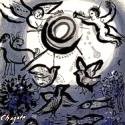
[ Your prayers for my health are deeply appreciated, friends.... ]
01.29.17 (Shevat 2, 5777) In times of severe testing people often do not need further teaching, but rather "endurance," or what the New Testament calls hupomone (ὑπομονή), a word that means "remaining [μένω] under [ὑπο]" the Divine Presence while being tested. Suffering people do not need moral platitudes from others, but only the will to believe, the resolution to stay constant, and to ability breathe out simple prayers for help to the LORD: "God have mercy..." "Help me, O God..." "I need Thee, O Lord..." When we receive grace to faithfully suffer, we hear the Spirit whispering back to us: "Be not afraid..." "Live in me..." "Walk in the light..." "I am with you always..." "You are loved..."
רְפָאֵנִי יְהוָה וְאֵרָפֵא
הוֹשִׁיעֵנִי וְאִוָּשֵׁעָה כִּי תְהִלָּתִי אָתָּה
re·fa·ei·ni · Adonai · ve·ei·ra·fei
ho·shi·ei·ni · ve·iv·va·shei·ah, · ki · te·hil·la·ti · at·tah

"Heal me, O LORD, and I shall be healed;
save me, and I shall be saved, for you are my praise."
(Jer. 17:14)

Download Study Card
οὐδεὶς γὰρ ἡμῶν ἑαυτῷ ζῇ
καὶ οὐδεὶς ἑαυτῷ ἀποθνῄσκει·
ἐάν τε γὰρ ζῶμεν, τῷ κυρίῳ ζῶμεν,
ἐάν τε ἀποθνῄσκωμεν, τῷ κυρίῳ ἀποθνῄσκομεν.
ἐάν τε οὖν ζῶμεν ἐάν τε ἀποθνῄσκωμεν,
τοῦ κυρίου ἐσμέν (Rom. 14:7-8)
The Great Exodus - בא

01.29.17 (Shevat 2, 5777) Our Torah reading for this week begins with God commanding Moses "to go" (i.e., bo: בּא) before Pharaoh to announce further apocalyptic judgments upon Egypt. The purpose of this power encounter was to vindicate God's justice and glory (deliverance/salvation) by overthrowing the tyranny of unjust human oppression. Pharaoh's nightmare of "one little lamb" outweighing all the firstborn of Egypt was about to be fulfilled.
Recall that last week's Torah (Va'era) reported how Pharaoh defiantly refused to listen to Moses' pleas for Israel's freedom, despite seven devastating makkot (plagues) that came upon Egypt in God's Name (יהוה). In this week's portion (i.e., parashat Bo), the battle between the LORD and Pharaoh comes to a dramatic conclusion. The last three of the ten plagues are unleashed upon Egypt: a swarm of locusts devoured all the crops and greenery; a palpable darkness enveloped the land for three days and nights; and all the firstborn of Egypt were killed precisely at the stroke of midnight of the 15th of the month of Nisan... In this connection note that the word בּא ("go") and פרעה ("Pharoah") added together equal the gematria of משׁיח ("mashiach"), providing a hint of the Messianic redemption that was foreshadowed in Egypt. Every jot and tittle, chaverim!
Before the final plague, God instructed the Jewish people to establish a new calendar based on the sighting of the new moon of spring. On the tenth day of that month, God told the people to acquire a "Passover offering" to Him, namely an unblemished lamb (or goat), one for each household. On the 14th of that month ("between the evenings") the animal would be slaughtered and its blood sprinkled on the doorposts and lintel of every Israelite home, so that God would "pass over" these dwellings when He came to kill the Egyptian firstborn that night. The roasted meat of the offering was to be eaten that night with unleavened bread (matzah) and bitter herbs (maror). God then commanded the Israelites to observe a seven-day "festival of matzah" to commemorate the Exodus for all subsequent generations.
Because of this, our corporate identity begins with a shared consciousness of time from a Divine perspective. The mo'edim (festivals of the LORD) all are reckoned based on the sacred calendar given to the redeemed Israelite nation. As it is also written in the Book of Psalms: "He made the moon for the appointed times" / עָשָׂה יָרֵחַ לְמוֹעֲדִים (Psalm 104:19). Undoubtedly Yeshua followed this calendar, as did His first followers (Gal. 4:4).
Just before the dreadful final plague befell, God instructed the Israelites to ask their Egyptian neighbors for gold, silver and jewelry, thereby plundering Egypt of its wealth (this was regarded as "uncollected wages" for hundreds of years of forced labor and bondage - not to mention for the services of Joseph, whose ingenuity brought the world's wealth to Egypt in the first place). Moses then instructed the people to prepare the Passover sacrifice, that is, the korban Pesach (קָרְבָּן פֶּסַה) - the Passover lamb - and to smear its blood on the two sides and top of the doorway, resembling the shape of the Hebrew letter Chet (ח). This Hebrew letter, signifying the number eight, is connected with the word חי (chai), short for chayim (חַיִּים), "life." The blood of the lamb (דַּם הַשֶּׂה) not only saves from the judgment of death, but also is a symbol of divine life given for our redemption. The "life is in the blood."
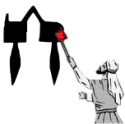
The dreadful final plague - the death of the firstborn - at last broke Pharaoh's resistance and he not only allowed the Israelites to depart without any conditions, he urged them to go. Because they left in great haste there was no time for their dough to rise. The Torah states that there were 600,000 adult men who left Egypt, along with the women, children, and a "mixed multitude" of other Egyptian slaves who tagged along.
The Israelites were commanded to consecrate all the firstborn to God and to commemorate the anniversary of the Exodus each year by celebrating the LORD's Passover in conjunction with the Feast of Unleavened Bread. During this time they were to remove all leaven from their homes for seven days, eat matzah, and retell the story of their redemption to their children. The portion ends with the commandment to wear tefillin (phylacteries) on the arm and head as a reminder of how the LORD saved the Israelites from their bondage in Egypt.
The Exodus Parable...

[ The following is related to our Torah reading for this week, Parashat Va'era... Shabbat Shalom and Chodesh Tov, dear friends and supporters of Hebrew for Christians! ]
01.27.17 (Tevet 29, 5777) The great exodus of Israel from Egypt is the central parable of the Torah. The bondage of the Israelites to Pharaoh represents humanity's slavery to sin; God's deliverance from bondage is effected by trusting in the blood of the sacrificial lamb of God; the passage from death to life symbolically comes through baptism into the Sea of Reeds; the journey to truth represents the pilgrimage to Sinai, and so on. Indeed, the redemption in Egypt led directly to revelation given at Sinai, and when the LORD God gave the Ten Commandments, he did not begin by saying he was our Creator, but rather our Redeemer: "I am the LORD your God (אָנכִי יְהוָה אֱלהֶיךָ), who brought you out of the land of Egypt, out of the house of slavery" (Exod. 20:2). This is because the purpose of the creation itself is to demonstrate God's redemptive love and to be known as our Savior and Redeemer, just as Yeshua is the "Lamb slain from the foundation of the world" (Rev. 13:8; 1 Pet. 1:18-20; Eph. 1:4; 2 Tim. 1:9). "All things were created by Him (i.e., Yeshua), and for Him" and in Him all things consist (συνεστηκεν, lit. "stick together") (Col. 1:16-17). Creation therefore begins and ends with the redemptive love of God as manifested in the Person of Yeshua our Mashiach, the great Lamb of God and our Savior... He is the Center of Creation - the Aleph and Tav - the Beginning and the End (Isa. 44:6; Rev. 1:17). All the world was created for the Messiah: "For from him and through him and to him are all things. To him be glory forever. Amen" (Rom. 11:36). Ponder the glory of our Savior, chaverim! Shabbat Shalom!
The I-AM-WITH-YOU Name...
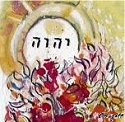
01.27.17 (Tevet 29, 5777) The Name of the LORD is "I-AM-WITH-YOU-ALWAYS," which implies that we always live within God's Presence and care, even if we are sometimes unaware of this truth. As it is written in the prophets, hen al kapayim hachotikh: "Behold I have engraved you on the palms of my hands" (הֵן עַל־כַּפַּיִם חַקּתִיךְ) - Isa. 49:16. Remember the One who stretched out his hands and died for your healing; remember that he said, "Don't be anxious about tomorrow, for tomorrow will be anxious for itself. Sufficient for the day is its own trouble." Again, "do not be anxious for any reason, but in everything by prayer and supplication with thanksgiving let your requests be made known to God, and the peace of God (שְׁלוֹם אֱלהִים), which surpasses all understanding, will guard your hearts and your minds in Yeshua the Messiah" (Phil. 4:6-7). God keeps in perfect peace those whose mind is stayed on Him (Isa. 26:3).
יֵצֶר סָמוּךְ תִּצּר שָׁלוֹם שָׁלוֹם כִּי בְךָ בָּטוּחַ
בִּטְחוּ בַיהוָה עֲדֵי־עַד כִּי בְּיָהּ יְהוָה צוּר עוֹלָמִים
ye·tzer · sa·mukh · titz·tzor · sha·lom · sha·lom · ki · ve·kha · ba·tu·ach
bit·chu · vadonai · a·di-ad · ki · be·Yah · Adonai · tzur · o·la·mim

You will keep him in perfect peace whose mind is stayed on you, for he trusts in you.
Trust in the LORD forever, for Yah the LORD is the Rock of Ages.
(Isa. 26:3-4)

Hebrew Study Card
"Let the peace of God rule in you," friend (Col. 3:15).
Way of Inner Peace...
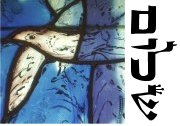
01.27.17 (Tevet 29, 5777) When we lose sight of the truth that God is in complete control of all things, we tend to grow anxious... Feeling worried comes from focusing on ourselves, a perspective that can make us feel alone, forgotten, and victimized in this world. Worry moves us to defend ourselves, to seek refuge in our own devices, and to forfeit the will of God according to the dictates of lesser fears... The sages say it is not permitted to worry: "To worry is a sin. Only one sort of worry is permissible; to worry because one worries." We should worry that we worry because this indicates our hardness of heart and our unbelief. God's name YHVH (יהוה) means "Presence," "Breath," "Life," and "Love." Why should we be anxious for "tomorrow"? We really only have this moment, but this moment is entirely sufficient when we walk in the light of God and seek to know him in all our ways:
בְּכָל־דְּרָכֶיךָ דָעֵהוּ
וְהוּא יְיַשֵּׁר ארְחתֶיךָ
be·khol · de·ra·khe·kha · da·ei·hu
ve·hu · ye·ya·sher · or·cho·te·kha

"In all your ways know Him
and He will make your paths upright"
(Prov. 3:6)

The great Shema admonishes us to remember the truth "when you sit in your house, when you walk in your ways, when you lie down, and when you rise up" (Deut. 6:6). "In all your ways know Him," that is, in all that you put your hand to do look for the Divine Presence and guidance (1 Cor. 10:31). As King David stated, "I have set the Lord always before me, because He is at my right hand, I shall not be moved" (Psalm 16:8).
Power to the Faint...

01.27.17 (Tevet 29, 5777) "Have you not known? Have you not heard? The Eternal One, the LORD, is the Creator of the ends of the earth (בּוֹרֵא קְצוֹת הָאָרֶץ). He does not faint nor grow weary; his understanding is unsearchable. He gives power to the faint, and to him who has no might he increases strength" (Isa. 40:28-29). Human reason has no objection that God can impart strength, but it objects that strength is found in those who are broken and weary, that is, to the "poor in spirit" who mourn over their lives... And yet it is so: God gives strength to the weary, to the faint, to those who are at the end of themselves: "My power is made perfect (τελειοῦται) in weakness" (2 Cor. 12:9). Man's way is to seek charisma, to esteem those who have natural beauty, charm, or special talents, whereas God's way is first to break us, to make us weaker and weaker, so that he can then fill us with the miraculous divine nature (2 Cor. 4:7). Like all sacrifices that were brought to the altar, we must pass through death to life by means of our union with the Messiah at the cross... It is only after the cross that it may be said, "It is no longer 'I' who lives; now it is Messiah who lives His life in me." There is indeed strength, power, and victory – but such comes after we reckon carnal energy as useless. Indeed, the word "Hebrew" (עִבְרִי) means one who has "crossed over" (עָבַר) to the other side, as our father Abraham did (Gen. 14:13). It is on the other side of the cross that we experience the very power that created the universe "out of nothing" (i.e., yesh me'ayin: יֵשׁ מֵאַיִן) and that raised Yeshua the Messiah from the dead. "Not by might, nor by power, but by My Spirit, says Adonai Tzeva'ot."
נתֵן לַיָּעֵף כּחַ
וּלְאֵין אוֹנִים עָצְמָה יַרְבֶּה
no·tein · la·ya·ef · ko·ach
u·le·ein · o·nim · otz·mah · yar·beh

"He gives power to the faint,
and to him who has no might he increases strength"
(Isa. 40:29)
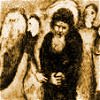
Download Study Card
Note that the word translated "strength" in this verse (otzmah) comes from the same root for "bones" (עֲצָמוֹת). This alludes to the vision of the "dry bones" being clothed with life at the time of resurrection. "Thus says the Lord God to these bones: 'Behold, I will cause breath to enter you, and you shall live'" (Ezek. 37:5). If God has the power to give life to dessicated bones, surely his resurrection power can "quicken us" through the life of our beloved Savior Yeshua who said, "You will receive power (i.e., koach: כּחַ) when the Holy Spirit has come upon you, and you will be my witnesses" (Acts 1:7). Indeed you can do "all things" through Messiah who strengthens you (Phil. 4:13).
The Name El Shaddai...
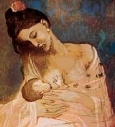
[ The following entry is also related to this week's Torah reading (Parashat Va'era)... ]
01.26.17 (Tevet 28, 5777) "I appeared to Abraham, to Isaac, and to Jacob, as El Shaddai..." (Exod. 6:3). The name El Shaddai (אֵל שַׁדָּי) is often translated "God Almighty," probably because the translators of the Septuagint (i.e., the Greek translation of the Old Testament) thought shaddai came from a root verb (shadad) that meant "to overpower" or "to destroy." The Latin Vulgate likewise translated Shaddai as "Omnipotens" (from which we get our English word omnipotent). In other words, God is so overpowering that He is considered "Almighty." It is more likely, however, that the name Shaddai is connected to shadayim (שָׁדַיִם) the Hebrew word for "breasts," indicating sufficiency and nourishment (i.e., the breasts of a mother who shows rachamim, compassion). And indeed, a survey of the name in Scripture connects it with the fertility and growth of the original families of Israel.
For more on the Hebrew name El Shaddai, see the article, "God as El Shaddai."
Remove your Shoes...
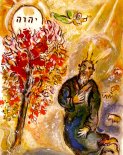
01.26.17 (Tevet 28, 5777) We live in the midst of a mysterious universe filled with astounding wonder and vast complexity, from the smallest of subatomic particles to the largest of cosmic events... If we could really see, if our eyes were truly open, we would understand that the universe and everything in it is filled with God's glory (Psalm 19:1). Where it is written, "Remove your shoes, for the place you are standing is holy" (Exod. 3:5) means we are to remove the deadness of our unreflective habits, those routine ways of "sightless seeing" that insulate us and hide us from the astonishment of reality. "Holy, holy, holy is the LORD of hosts; the whole earth is full of his glory!"
קָדוֹשׁ קָדוֹשׁ קָדוֹשׁ יהוה צְבָאוֹת
מְלא כָל־הָאָרֶץ כְּבוֹדוֹ
ka·dosh · ka·dosh · ka·dosh · Adonai · Tze·va·ot,
me·lo · khol · ha·a·retz · ke·vo·do

"Holy, holy, holy is the LORD of hosts;
the whole earth is full of his glory!"
(Isa. 6:3)

Download Study Card
The LORD is the Source of all existence. This is implied in the Name YHVH (יהוה) itself, which comes from the Hebrew verb "to be" (hayah), and therefore God is called ha-hoveh, ve'hayah, ve'yavo (הַהוֶה וְהָיָה וְיָבוֹא) - "the One who is, and was, and is to come" (Rev. 4:8). God first defined His essential Name to Moses as ehyeh asher ehyeh (אֶהְיֶה אֲשֶׁר אֶהְיֶה), "I AM that I AM," abbreviated simply as ehyeh (אֶהְיֶה), "I AM" (Exod. 3:14). This "threefold" Name of the LORD of Hosts encompasses all possible states of being, so that of the LORD alone it is said, melo kol ha-aretz kevodo: "the whole earth is full of his glory" (Isa. 6:3).
"Out of all this world, take this forest; out of all the forest, take this tree. Out of all the tree, take this branch. Out of all the branch, take this leaf. And on this leaf that is like no other, observe this drop of rain that is like no other. And on this single drop observe the reflection of leaves and branches, of the entire tree, of the forest and of all the world - then only will you see the stars beyond the light of day." - James Kirkup
Why did God choose to reveal himself to Moses in the midst of a thornbush (הַסְּנֶה)? To teach us that there is no place devoid of the Divine Radiance, not even the lowly thornbush. Indeed the midrash asks, 'Where is God?' and then cites where Torah says, 'I will stand before you there' (Exod. 17:6), which is to say, in every place where you find a trace of footsteps, there I AM. As Elizabeth Browning wrote, "Earth is crammed with heaven; and every bush afire with God; but only he who sees takes off his shoes." May the LORD open our eyes and help us not be sightless among His miracles...
The Power of Truth...

[ The following is related to our Torah reading for this week, Parashat Va'era... ]
01.26.17 (Tevet 28, 5777) In this week's Torah reading (Va'era), the LORD sent Moses and Aaron to Pharaoh with the timeless message: shalach et ami (שׁלַּח אֶת־עַמִּי), "let my people go!" Because of Pharaoh's hardness of heart, however, God began the sequence of plagues that would demonstrate his sovereignty over all the powers and so-called "gods" of Egypt (Exod. 12:12). The ten plagues (i.e, eser ha'makot: עֶשֶׂר הַמָּכּוֹת) were given not just to vanquish the pride of Pharaoh, however, but to awaken the people of Israel. After hundreds of years of slavery, the people had forgotten who they really were and had passively accepted that all real power was vested in humans. Among other things, God's intervention was meant to deliver the people from the fallacy of ascribing greatness to worldly powers. Ultimately the people of Israel - and indeed the entire world - would come to understand ein od milvado (אֵין עוֹד מִלְבַדּו), "there is no power apart from Him" (Deut. 4:35).
The New Pharaoh's Dream...

01.25.17 (Tevet 27, 5777) According to midrash, just as the Pharaoh during the time of Joseph was troubled by his dreams (Gen. 41:1-7), so was the "new king" that arose during the time of Moses. In the new Pharaoh's dream, an old man was standing before him as he sat on his throne, holding a balance in his hand. The old man placed all the nobles and governors of Egypt on one side of the balance, and on the other side, he placed one small lamb. To Pharaoh's astonishment, however, the lamb outweighed all the leaders of Egypt! When the king asked his advisors to interpret the dream, they said it foretold of a coming king who would overthrow the kingdom of Egypt and set the Israelites free. This coming one would excel in wisdom and his name would be remembered forever as the Savior of Israel.
Of course the rest of the Book of Exodus is essentially God's interpretation of the new Pharaoh's dream, as the great events of the Exodus would reveal. The LORD God of Israel forewarned this king that Egypt would come into judgment by the Lamb of God... Indeed, the only way to escape this judgment and the wrath of God was by being covered by the sacrificial blood of the lamb... The Lamb of God is central to Israel's deliverance and becomes the focal point of the revelation of the sanctuary later given at Sinai.
Israel was redeemed from Egypt by trusting in the promise of their deliverance, as it is written, "and the people believed" (וַיַּאֲמֵן הָעָם) ... and bowed their heads and worshiped" (Exod. 4:31). Recall that the blood of the korban Pesach - the Passover lamb - was to be smeared on the two sides and top of the doorway, resembling the shape of the letter Chet (ח). This letter, signifying the number 8, is connected with the word חי (chai), short for chayim (life). The blood of the lamb (דַּם הַשֶּׂה) not only saves from the judgment of death, but it also is the means of imparting divine life and power...
Knowing the Savior...

01.25.17 (Tevet 27, 5777) What was the reason for Abraham's dark vision (Gen. 15:12-15) and the subsequent exile of his children in Egypt – their persecution and suffering – were it not to experience redemption and receive the sacred duty to redeem others from bondage to evil? The deliverance from Egypt led directly to the revelation at Sinai. Therefore each of us is given shem ivri (עִבְרִישֵׁם), a "Hebrew name," when we cross over into the freedom we have in Yeshua. Indeed the New Testament says that the "Torah of Messiah" (תּוֹרַת הַמָּשִׁיחַ) is to bear one's another's burdens (Gal. 6:2).
In this connection the classical sages discuss whether or not it is possible to experience new revelation apart from the withdrawal (or transcendence) of a former revelation, and they suggest that God "withdrew" from the children of Israel in Egypt so that they could come to know him as YHVH – the Compassionate and Faithful One. God had to locate the people in Egypt – "be'mitzrayim" – a place of inescapable bondage – in order to remove them from it. That is why God began his message to Moses saying. "I AM YHVH" (אֲנִי יהוה), I appeared to Abraham, to Isaac, and to Jacob, as El Shaddai (בְּאֵל שַׁדָּי), but by my name the LORD (יהוה) I did not make myself known to them" (Exod. 6:2-3). God "appeared" to the fathers as the source of their promises, but the children of the Exodus generation were to be given new revelation of God's faithful love and deliverance...
The statement: "I will take you to be my people, and I will be your God, and you shall know that I am the LORD your God who has brought you out from under the burdens of the Egyptians" (Exod. 6:7) plainly states the goal of the redemption is to be brought into relationship with God as your personal Savior... This is the "love story" of the Exodus.
Prisoners of Hope...
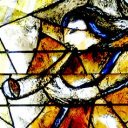
01.25.17 (Tevet 27, 5777) "Guide me in your truth and teach me, for you are the God of my Salvation (אֱלהֵי יִשְׁעִי); in you I wait all the day long" (Psalm 25:5). Because we are beset by difficulties and various trials in this life, we must seek the truth from God our Teacher, who is the Savior to all who look to Him. Our seeking is expressed in hope (תִּקְוָה), and this implies we lament over the exile and yearn for deliverance -- both for ourselves and for the whole world. We must console ourselves and find courage, since we are called asirei ha'tikvah (אֲסִירֵי הַתִּקְוָה), "prisoners of hope," to whom the word is given: "be not afraid," and "return to your strength, you prisoners of hope" (Zech. 9:12). The sages here note that the Hebrew word for "prisoner" (i.e., asir: אָסִיר) comes from the root asar (אָסַר), meaning "to bind" or "to fasten together," suggesting that we must be bound to hope with an unshakable bond, never surrendering to despair. Even in the pitch of deepest darkness God's kindness never ceases, and his love is renewed for us day by day (Lam. 3:22-23). Let us, then, press on in faith, strengthened in the conviction that the hope of the righteous will never be cut off.
הַדְרִיכֵנִי בַאֲמִתֶּךָ וְלַמְּדֵנִי
כִּי־אַתָּה אֱלהֵי יִשְׁעִי
אוֹתְךָ קִוִּיתִי כָּל־הַיּוֹם
had·ri·khei·ni · va'a·mi·te·kha · ve·lam·me·dei·ni
ki · at·tah · E·lo·hei · yish·i
o·te·kha · kiv·vi·ti · kol · hai·yom

"Guide me in your truth and teach me,
for You are the God of my Salvation;
in You I wait all the day long." - Psalm 25:5

Hebrew Study Card
"Though the fig tree does not blossom, nor fruit be found on the vines, though the produce of the olive fail and the fields yield no food, and though the flock be cut off from the fold and there be no herd in the stalls, yet I will rejoice in the LORD; I will take joy in the God of my salvation" (Hab. 3:17-18). The targum translates "I will rejoice in the LORD" as "I will rejoice in the Word of the LORD." The Source of such joy comes to the heart of faith that sees Elohei Yishi (אֱלהֵי יִשְׁעִי), the "God of my salvation," namely, the One who was and is and is to come (הַהוֶה וְהָיָה וְיָבוֹא) – the LORD our God Yeshua (Rev. 1:4;8; Isa 41:4). Augustine rendered Elohei Yishi as "God my Jesus," since "Jesus" (i.e., Yeshua) means YHVH saves. Yeshua is the One who breathed life into the first Adam just as He is the One who breathes eternal life into those who are descended from Him, the great "second Adam." He is the Source of our hope.
Taking Exodus Personally...

[ The following is related to our Torah reading for this week, Parashat Va'era and the general theme of the Passover / Exodus... ]
01.24.17 (Tevet 26, 5777) The message of Passover applies to each of us: "In each and every generation an individual should look upon him or herself as if he or she (personally) had left Egypt." Indeed the very First Commandment is to accept the reality of our personal deliverance by the LORD: "I AM the LORD your God (אָנכִי יְהוָה אֱלהֶיךָ ), who brought you (singular) out of the land of Egypt, out of the house of slavery" (Exod. 20:2). Note that the Hebrew word "Egypt" is mitzraim (מִצְרַיִם), a word that means "prison, enclosure, or straights," from the verb tzur (צוּר) meaning "to bind or confine" (the Yiddish word tsuris, "trouble," comes from the same root). On the other hand, the Hebrew word for salvation is yeshuah (יְשׁוּעָה), from a root that means to "make wide," to "release from constraint," to deliver or set free. It is noteworthy that God began the Ten Commandments by identifying Himself as our Redeemer and Deliverer rather than as our Creator, because the purpose of creation is to be set free by means of God's redemptive love given through Yeshua, the "Lamb slain from the foundation of the world" (Rev. 13:8; 1 Pet. 1:18-20; Eph. 1:4).
Truth sets you free...

[ The following is related to our Torah reading for this week, Parashat Va'era... ]
01.24.17 (Tevet 26, 5777) When Yeshua said that the truth would "set us free" (ἐλευθερώσει), he was referring to the acceptance of the Witness of Divine Reality (i.e., the Word, Breath, Spirit, Voice, Message, Meaning, and Love of God) that delivers us from the lies we habitually tell ourselves. If you "persevere in my word" (μείνητε ἐν τῷ λόγῳ τῷ ἐμῷ) he said, "then you are my disciples indeed, and you will know the truth, and the truth will set you free" (ἡ ἀλήθεια ἐλευθερώσει ὑμᾶς, John 8:31-32). In other words, as we identify with his vision and redemptive mission, we will "be free indeed" from the tohu va'vohu (Gen. 1:2) – the "chaos and unreality" – that inescapably besets the way of the lie... We will be delivered from vanity and delusions of this world and its diseased affections; we will be set free from the need to justify ourselves by religion (perfectionism); we will no longer crave other people's approval; we will not be moved by the crowd and its pressures; we will find courage to face our challenges without resorting to escapism; and we will learn how to experience peace even when we encounter frustrations. Despite our daily struggles and tests, we will be released from bondage to anger and resentment as we yield our will in trust that God is working all things together for our ultimate good (Rom. 8:28). Genuine freedom is not an "accidental property" of the heart, depending on "luck" or "fortune," but instead is a decision to believe in the Reality of the salvation of God given in Yeshua our LORD.
Redemption and Freedom...
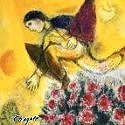
[ The following is related to our Torah reading for this week, Parashat Va'era... ]
01.24.17 (Tevet 26, 5777) Our culture today is wicked and lawless, afflicted with the cowardice that comes from having a bad conscience. In that sense it is decidedly unfree and enslaved to its own self-destructive impulses. Tragically, many people today interpret "freedom" to mean the ability to do whatever they want to do whenever they want to do it. However, simply "doing your own thing" is not the Torah's idea of freedom. Yeshua told us "whoever commits sin is the slave (δουλος) of sin," and went on to say "if the Son sets you free, you will be free indeed" (John 8:34-36). True freedom (i.e., cherut: חרוּת) is therefore moral and spiritual rather than merely physical. Real freedom has to do with the power to choose what is right and good, not to simply get your own way or to practice your lusts... Our deliverance is meant to clothe us with divine power to walk in righteousness and truth.
The Madness of Pharaoh...

01.24.17 (Tevet 26, 5777) In parashat Va'era, Moses confronts Pharaoh and repeatedly demands that the Israelites be set free to serve the LORD. Over and over Pharaoh refuses, with the Torah commenting "vayechezak lev" (וַיֶּחֱזַק לֵב), that he "hardened his heart." Note, however, that this phrase contains the word chazak (חָזָק), "strong," which indicates that Pharaoh "strengthened" his heart, or steeled his resolve not to question his convictions -- a decision that led him to increasingly deny reality. We can learn from Pharaoh here. Sometimes our habitual decisions and self-assured opinions can blind us to what is really happening, and the momentum of such repeated decisions can begin to enslave our thinking. After each of the first five plagues, Pharaoh "hardened his heart," but thereafter the Torah states that the LORD hardened the heart of Pharaoh (וַיְחַזֵּק יְהוָה אֶת־לֵב פַּרְעה). In other words, God "gave him up" by ratifying his arrogant decisions, and Pharaoh then lost control of his own fate. In the end he destroyed himself because he was unwilling to humble himself by honestly questioning the assumptions he used to justify his life...
Deliverance from Ourselves...
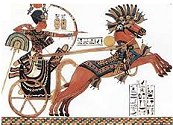
[ The following is related to our Torah reading for this week, Parashat Va'era... ]
01.23.17 (Tevet 25, 5777) From our Torah portion for this week (Va'era) we read, "Pharaoh's heart was hardened (וַיֶּחֱזַק) so he would not listen..." (Exod. 8:19). The worst kind of bondage is when you are oppressed by yourself - when you are so enslaved by your inner urges that you are no longer able to think outside of your desire or to choose to do otherwise... It might be greed, the desire for pleasure, fear, anger, or the "need" to be right (i.e., pride), but whatever controls you is ultimately your taskmaster. Ironically, Pharaoh's will to enslave the Israelites made him into a slave...
Self-deception can entice us to deny the consequences of our passions or to rationalize them by pretending we are victims. Because of this, we may become further enslaved to our own sense of self-importance, and we become ensnared within the prison house of the all-demanding ego. We can only be delivered from the "tyranny of ourselves" by God's power, as Yeshua said: "you will know the truth, and the truth will set you free" (John 8:32). This is the truth of God's power of deliverance given in Yeshua our Lord (Rom. 1:16; 1 Cor. 1:18). The truth sets you free not merely in some intellectual sense (i.e., being made free from error), but in a volitional sense, in the core of your being, when your will is no longer enslaved to the power and inner darkness of sin... May God help us be free!
Slavery and Passivity...
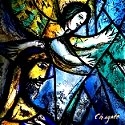
01.23.17 (Tevet 25, 5777) From our Torah portion this week (i.e., parashat Va'era) we read, "I will bring you out from under the burdens of the Egyptians" (Exod. 6:6). The sages say the Hebrew word for "burdens" (סִבְלת) used in this verse can also be read as passivity (סְבִילוּת): "I will deliver you from passivity toward your slavery...." So long as the people regarded their enslavement as tolerable, they could excuse it, rationalize it, and even defend it. Therefore God allowed tribulation to progressively increase so that the people would understand their great need. Likewise we cannot even begin to understand our need for deliverance as long as we are comfortable, numb, and dead inside... Indeed the very worst kind of slavery is to be unaware that you are, indeed, in bondage. The first step toward moral freedom, then, is to be set free from our denial, to wake up, to resist evil, and to find faith that God desires something better for our lives.
From the Midst of the Thorns...
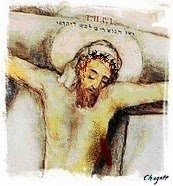
01.23.17 (Tevet 25, 5777) Why did the LORD, the Holy One, reveal Himself to Moses out of the midst of a lowly thorn bush, and not some grand tree? God lowered himself to speak from within the bush, as it is written: "For though the LORD be high, he regards the lowly" (Psalm 138:6); and "I will be with him in trouble" (Psalm 91:15). The midrash imagines God saying to Moses: "Don't you feel that I suffer anguish whenever Israel does? Know, therefore, from the character of the place from which I speak, out of the thorn bush, that I, as it were share their suffering" (Shemot Rabbah 2:7). God speaks to us from the place of thorns – even those about his own head – words of great comfort and deliverance. From the midst of the fire (בְּלַבַּת־אֵשׁ מִתּוֹךְ הַסְּנֶה), within the lowliest of places, covered in the thorns of our sin and shame, Yeshua speaks words of healing love. Bless his name forever!
Torah of the Vine...

01.23.17 (Tevet 25, 5777) We find life only as we remain connected to the Source and Conduit of life, who is the Messiah, the Savior and LORD. True life grows out a heart connection with Yeshua, and without that connection our lives become vain and yield no eternal significance (John 15:5). Be forewarned: it is the sacred truth of the Messiah that if you do not live in the Vine you will be suffer eternal loss, since life is found in no other Source (John 14:6; Luke 3:9). Be encouraged, dear trusting friend: the yoke of Messiah is easy, and His burden is light: we cannot create new life by our own best efforts nor effect regeneration by means of our own "good works." No, the work of salvation is God's alone, and we partake of that work as we abandon our self-efforts and religious conceits (see Isa. 32:17). There remains, therefore, a Sabbath for the people of God, "for whoever has entered God's rest has also rested from his works as God did from his" (Heb. 4:9-10). This "deep Sabbath" of rest is a matter of trusting that the finished work of salvation has been given on your behalf. Therefore relax, for the LORD always effects what is best for you, and nothing is under your control anyway. The path of peace is to surrender to God's care for your life and let the evils and drama of this world flow past you. Look to heavenly reality and not to the shadows and deceits of this world (Col. 3:1-4). Live in Yeshua's Presence, drawing strength and vitality from your relationship with Him. The conditional statement, "If you live in Me and my words live in you" (John 15:7), means that we will know His heart as we heed the message of his truth (i.e., his word) within our hearts.. The fruit of the Holy Spirit is produced as we yield ourselves to the love and presence of God.
For more on this topic, see: "The Torah of the Vine: Living in the Divine Connection."
Knowing the Name...
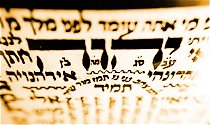
[ The following is related to our Torah reading for this week, Parashat Va'era... ]
01.22.17 (Tevet 24, 5777) From our Torah portion this week we read that God said to Moses: "I appeared (וָאֵרָא) to Abraham, Isaac, and Jacob as El Shaddai (אֵל שַׁדָּי), but by my name the LORD (יהוה) I did not make myself known to them" (Exod. 6:3). Here we are faced with a puzzle, since the Torah clearly states that God revealed Himself as YHVH to the patriarchs. For example, to Abraham God said, "I am the LORD (אֲנִי יְהוָה) who brought you out of Ur of Kasdim" (Gen. 15:7), and to Jacob he said: "I am the LORD (אֲנִי יְהוָה), the God of Abraham your father and the God of Isaac (Gen. 28:13). In light of this, how then do we make sense of God's statement that He was not known as YHVH to the patriarchs?
The traditional explanation is that God was stating that the patriarchs had not directly experienced His mastery over creation through the signs and wonders He would perform as Israel's Savior and Redeemer. The patriarchs understood God as El Shaddai (אֵל שַׁדַּי), the all-sufficient One who nurtured the fledgling nation and who foretold Israel's future (Gen. 17:1-2; 28:3; 35:11), but Moses (and the Israelites) would now know God's attributes of covenantal faithfulness (chesed) as the "Promise Keeper" by directly witnessing his saving acts. Indeed, the Name YHVH implies that God is the Faithful One, since the name is formed by permutating the letters of the Hebrew root "to be": hayah (was), hoveh (is), and yihey (will be), which implies there is no power that can prevent God from fulfilling His promises. YHVH is Lord of lords and King of kings whose word can never fail (Deut. 10:17; Dan. 2:47). Ein od milvado (אֵין עוֹד מִלְבַדּו): "there is no power apart from Him" (Deut. 4:35,9).
The name "ehyeh asher ehyeh" (אֶהְיֶה אֲשֶׁר אֶהְיֶה) means "I shall be as I shall be," that is, "I shall be with those who desire that I shall be with them. I reveal myself to those who seek for me, and as I am sought, so I will be found. According to your faith be it done unto you: Blessed are they that hunger and thirst for righteousness, for they shall be filled..."
For more on this subject, see the article: Yeshua and YHVH.
Note: The question of the Name of God is raised both in last week's Torah portion (Shemot), where Moses asked God's Name to validate his mission to Israel, and again in this week's portion (Va'era), where God made the puzzling statement that the patriarchs did not know God's Name as YHVH (יהוה). The entire question of God's name resolves to be a question about our ability to understand the very heart of God more than anything else (it's a matter of Who, not What). This is demonstrated by the fact that the name YHVH (יהוה) was revealed yet again to Israel only after the sin of the Golden Calf, when Moses learned that it meant Compassion and Grace (see Exod. 34:6-7). This second revelation of the Name foreshadowed the New Covenant to come. Indeed the full meaning of God's name was revealed in the last gasp of Yeshua as He died upon the cross for our atonement: ἐξέπνευσεν - "he breathed out," the great exhalation of all that he came to be for us... (Mark 15:37).
Holocaust Remembrance Day...
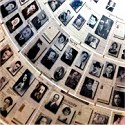
01.22.17 (Tevet 24, 5777) On January 27, 1945, the largest of the Nazi death camps (Auschwitz-Birkenau in Poland) was liberated by Soviet troops. In October 2005, the UN General Assembly designated this date as "International Holocaust Remembrance Day" to commemorate and honor the victims of the Nazi era. Note that the UN-sponsored date is not the same thing as Yom HaShoah, which occurs in the spring (Nisan 27).
The systematic genocide of the Jewish people is one of the most heinous and barbarous crimes in the history of humanity. Reflecting on the atrocities should lead each of us to be vigilant to protect the individual liberties of all people at the hands of the State. Any political ideology or religious creed that elevates the interest of the "collective" over the sanctity of the individual is therefore inherently suspect.
Note: For more information about IHRD, see this page.
Parashat Va'era - וארא

01.22.17 (Tevet 24, 5777) Last week's Torah portion (Shemot) told how Moses and Aaron were commissioned to go before Pharaoh and deliver the God's message: "Let my people go, that they may hold a feast to me in the desert." Not only did Pharaoh dismiss the request, but he imposed even harsher decrees against the Israelites and caused them to suffer miserably. Moses then appealed to the LORD, who reassured him that Pharaoh would eventually relent because of "the greater might" of God's power to deliver His people.
In this week's portion (Va'era), the LORD told Moses that He was now going to fulfill His promise to Abraham, Isaac, and Jacob by giving the Israelites the land of Canaan, and that he had heard the "groaning of the people of Israel whom the Egyptians held as slaves" (Exod. 6:5). The showdown between the LORD (יהוה) and the so-called gods of Egypt was imminent, and God therefore encouraged the people with precious promises: "I AM the LORD (אֲנִי יְהוָה) and I will bring you out from under the burdens of the Egyptians, and I will deliver you from their bondage, and I will redeem you with an outstretched arm and with great judgment; and I will take you to me for a people and I will be to you a God" (these are the "four expressions of redemption" we recite during the Passover Seder every year).
Despite these wonderful promises, however, the people were unable to listen because of their "shortness of breath" (מִקּצֶר רוּחַ) on account of their harsh slavery. The LORD then told Moses: "Go in, tell Pharaoh king of Egypt to let the people of Israel go out of his land," and the great showdown between the LORD and the gods of Egypt began. However, even after repeatedly witnessing the series of miraculous plagues issued in the Name of the LORD, the despot remained proud and unmoved, thereby setting the stage for the final devastating plagues upon the land of Egypt and the great Passover redemption of Israel.
The Work of Righteousness...

01.20.17 (Tevet 22, 5777) It is written: "And the work of the Righteousness One will be peace, and the service of Righteousness One will be quietness and assurance forever" (Isa. 32:17). Note that it is the "work" (singular) of righteousness that is in view here – not the "works" (plural) of righteousness that we might perform (Titus 3:5). In other words, it is the work of the LORD alone, that is, the righteousness and glory of the Messiah, blessed be He, that gives us true peace (Psalm 37:39). Likewise the "service of righteousness" refers to the singular "avodah" of the great High Priest "after the order of Malki-Tzedek," which is the eternal service of intercession established by the inviolable will and counsel of Almighty God (Heb. 7:20-21). This avodah does not refer to acts of service performed by human beings in their religious ceremonies (i.e., the Levitical priesthood with its various forms of sacrificial worship), but rather the perfect act of service and sacrifice of Yeshua given upon the cross -- the everlasting atonement and eternal redemption secured by the greater priesthood of Yeshua (Heb. 9:12). "For our sake He made him to be sin who knew no sin, so that in him we might become the righteousness of God (δικαιοσύνη θεοῦ)." Only Yeshua can give us inner peace and eternal assurance; only Yeshua heals us from sin and death....
וְהָיָה מַעֲשֵׂה הַצְּדָקָה שָׁלוֹם
וַעֲבדַת הַצְּדָקָה הַשְׁקֵט
וָבֶטַח עַד־עוֹלָם
ve·ha·yah · ma·a·seh · ha·tze·da·kah · sha·lom
va·a·vo·dat · ha·tze·da·kah · hash·ket
va·ve·tach · ad · o·lam

"And the work of the Righteousness One shall be peace;
and the service of the Righteousness One shall be quietness
and assurance for ever." - Isa. 32:17
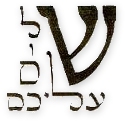
Hebrew Study Card
Moses' Thorn in the Flesh...

[ The following is related to our Torah reading for this week, Parashat Shemot... ]
01.20.17 (Tevet 22, 5777) According to midrash (Shemot Rabbah), as a very young lad Moses was once seen throwing Pharaoh's gold crown to the ground. Upon learning of this apparent act of insolence, Pharaoh devised a test to see if the child understood what he was doing. He therefore commanded that a platter with a piece of gold and a glowing piece of coal were to be presented before Moses and ordered the little boy to choose one. If Moses chose the gold, it would imply that he understood its value, and therefore he would be killed. On the other hand, if Moses chose the burning coal, he would be spared since he was unable to differentiate between gold and a glowing piece of coal. Moses began to reach out for the gold when an angel pushed his hand aside and he grabbed the coal instead. He then immediately put his hand in his mouth, but that burned his lips and tongue so badly that he had a permanent speech impediment as a result.
Later, when God commissioned Moses to speak to the children of Israel, he protested to the LORD that he was "heavy of mouth and heavy of tongue" (i.e., kevad peh ve'kaved lashon: כְּבַד־פֶּה וּכְבַד לָשׁוֹן) and therefore was unable to eloquently speak on behalf of the LORD to Pharaoh (Exod. 4:10). But the LORD said to him, "Who has made man's mouth? Who makes him mute, or deaf, or seeing, or blind? Is it not I, the LORD? Now therefore go, and I will be with your mouth and teach you what you shall speak" (Exod. 4:11-12).
When the time arrived for Moses to actually go before Pharaoh to declare God's message to let the Israelites go, he again protested to the LORD that he was a man of "uncircumcised lips" (עֲרַל שְׂפָתָיִם), an idiom that meant that he regarded his lips to be of no acceptable use to God. (Ironically the prophet Isaiah later had his lips burned to purify them to speak on behalf of God; Isa. 6:6-7). In this connection it is interesting to ask why God did not simply heal Moses of his impairment. After all, the LORD had earlier told him that He had the power to make the blind to see, the deaf to hear, and the mute to speak...
According to many of the classical Jewish commentators, God did not cure Moses of his stuttering because He wanted the Israelites to know that he was a divine messenger. When he spoke in the Name of the LORD, the stuttering miraculously entirely disappeared and Moses spoke with fluent ease. This was to teach the people not to trust in human oratory or wisdom, but rather in the power of God (see 1 Cor. 2:1-5). Just as the Apostle Paul, the "Moses of the New Covenant," was given a "thorn in the flesh" (σκόλοψ τῇ σαρκί) to keep him humbly relying upon God for his sufficiency to serve (2 Cor. 12:7-10), so Moses was rendered entirely dependent upon the LORD but thereby became a "man of words" who spoke with "circumcised lips."
"O LORD, you will establish peace for us, for You have indeed done for us all our works" (Isa. 26:12). We must always remember that God does the work "for us" (לָּנוּ) and we are His witnesses. Salvation is "of the LORD," and is not the result of our own efforts. Anything of eternal value comes from God alone, who is the beginning and end of grace. "Not by (human) might, nor by (human) power, but by my Spirit, says the LORD of hosts (Zech. 4:6).
יְהוָה תִּשְׁפּת שָׁלוֹם לָנוּ
כִּי גַּם כָּל־מַעֲשֵׂינוּ פָּעַלְתָּ לָּנוּ
Adonai · tishpot · shalom · lanu
ki · gam · kol · ma'asenu · pa'alta · lanu

"O LORD, you will establish peace for us,
for You have indeed done for us all our works."
(Isa. 26:12)

Hebrew Study Card
Note that God does the work "for us" (לָּנוּ) and we are His witnesses... Salvation is "of the LORD," and is not the result of our own efforts. Anything of eternal value comes from God alone, who is the beginning and end of grace. "Not by (human) might, nor by (human) power, but by my Spirit, says the LORD of hosts (Zech. 4:6). If we lose sight of this truth, we are again made subject to the "law of sin and death" (תּוֹרַת הַחֵטְא וְהַמָּוֶת), that is, the futile principle of self-justification that constitutes the "wheel of suffering." We can escape this cycle only when we accept the truth about our condition and trust God for our deliverance. It is the "law of the Spirit of Life" (תוֹרַת רוּחַ הַחַיִּים), that is, the inner reign of the Holy Spirit, that sets us free from the reign of sin that leads to death...
YHVH - The Divine Presence...

01.20.17 (Tevet 22, 5777) God told Moses that his Name means that He is Present (הֹוֶה) in every moment - past, present, and future (הָיָה וְהוֶה וְיָבוֹא). The Name YHVH (יהוה) is "shorthand" for "I AM with you always" (אָנכִי אֶהְיֶה עִמָּכֶם). There is no moment in time, just as there is no place, where God is not "there" for us. This includes times of testing, darkness, and even death itself (Psalm 23:4). The LORD our God does not abandon us, even when He seems hidden, powerless, or unwilling to intervene. Faith trusts that He is present there, in moments when we are vulnerable, weak, afraid, and seemingly all alone, and that all things are bound up in his love and good will toward us... Faith receives God as always present, the substance of our hope and dream of eternal healing and eternal life.
The function of a name is to point to or signify reality... When we are in the hardest of moments, we don't worry about the morphology, phonetics, or linguistics of God's Name, but we rather call out and hunger for His Presence, Love, and Light. We are like little kids crying for our father. It is vanity and pride that makes people hardhearted regarding such matters. The Spirit of God speaks words of life to those who need to hear them. Shalom to you...
Source of your Breath...

[ The following is related to our Torah reading for this week, Parashat Shemot... ]
01.20.17 (Tevet 22, 5777) Though the meaning of God's Name (YHVH) was initially revealed to Moses as simply ehyeh (אֶהְיֶה), "I AM," or "I WILL BE" (Exod. 3:14), it is wonderful to realize that His Name was also revealed as ehyeh imakh (אהְיֶה עִמָּךְ), "I WILL BE WITH YOU" (Josh. 1:5,9; Isa. 41:10,13; John 10:28; Matt. 28:20, etc.). Just as the LORD is called Elohei ha-ruchot lekhol basar (אֱלהֵי הָרוּחת לְכָל־בָּשָׂר), "the God of the breath of all flesh" (Num. 16:22), so He is the Source of your breath, the One who exhales to you nishmat chayim (נִשְׁמַת חַיִּים), the "breath of life" that enables you to live (Job 12:10). Indeed the Name YHVH (יהוה) first appears in the Torah in regarding imparting the breath of life to Adam (Gen. 2:7). Note further that each of the letters of the Name YHVH represent vowel sounds (i.e., breath), suggesting again that God's Spirit is as close as your very next breath. Like the wind that cannot be seen, so is the spirit the essential part of your identity. Yeshua breathed on his followers and said, "Receive the Holy Spirit" (John 20:22).
The Shepherd's Call...
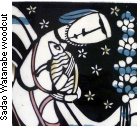
01.19.17 (Tevet 21, 5777) "What do you think? If a man has a hundred sheep, and one of them has gone astray, does he not leave the ninety-nine on the mountains and go in search of the one that went astray? And if he finds it, truly, I say to you, he rejoices over it more than over the ninety-nine that never went astray" (Matt. 18:12-13). Though it involves sorrow, and the pain of being lost, repentance is ultimately about finding joy, and when we return to God, we have reason to rejoice. The Good Shepherd says, "Rejoice with me, for I have found my sheep that was lost. Just so, I tell you, there will be more joy in heaven over one sinner who repents than over ninety-nine righteous persons who need no repentance" (Luke 15:6-7). The Son of Man came to seek and to save the lost: "For thus says the Lord GOD: Behold, I myself will search for my sheep and will seek them out... I myself will be the Shepherd of my sheep, and I myself will make them lie down, declares the Lord GOD. I will seek the lost, and I will bring back the banished, and I will bind up the injured, and I will strengthen the sick..." (Ezek. 34:11,15-16).
Heart of the Fire...
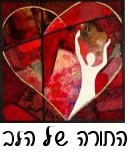
01.19.17 (Tevet 21, 5777) In our Torah we read that the Angel of the LORD (מַלְאַךְ יהוה) appeared to Moses "in the flame of fire" from the midst the bush (Exod. 3:2). The Hebrew phrase "flame of fire" (בְּלַבַּת־אֵשׁ) can also be read as the "heart of fire" (from לב, "heart"). What nourishes the flame is the heart of God as expressed through the Word of God saying: "I AM the God of your father, the God of Abraham, the God of Isaac, and the God of Jacob."
אָנכִי אֱלהֵי אָבִיךָ אֱלהֵי אַבְרָהָם
אֱלהֵי יִצְחָק וֵאלהֵי יַעֲקב
a·no·khi · e·lo·hei · a·vi·kha · e·lo·hei · Av·ra·ham
e·lo·hei · Yitz·chak · vei·lo·hei · ya·a·kov

"I AM the God of your father, the God of Abraham
the God of Isaac, and the God of Jacob"
(Exod. 3:6)
Mystery and God's Name...

[ The following is related to our Torah reading for this week, Parashat Shemot... ]
01.18.17 (Tevet 20, 5777) When Moses asked why he was chosen to be God's emissary, the LORD did not explain His choice in natural terms; nor did not appeal to Moses' past experiences, his potential, or even his great humility... Instead God simply said that whatever inadequacies Moses might have, being in relationship "with Him" was sufficient: ki ehyeh imakh: "for I will be with you" (Exod. 3:12). That is all that Moses would need...
When Moses further sought to justify his calling as a true prophet sent from God, however, he asked to know God's "name" (see Exod. 3:13). God's response to the request was enigmatic: אֶהְיֶה אֲשֶׁר אֶהְיֶה - ehyeh asher ehyeh: "I will be what I will be" (or I am what I am), which may be understood as, "It doesn't matter what my Name is - I will be what I will be - all that matters is that I will be with you (ehyeh imakh), and that is enough! Indeed, the meaning of God's name is פִּלְאִי- "wonderful and incomprehensible" (Judges 13:18), since He is infinite and beyond all comparison to finite things (Psalm 147:5). God is the great "I AM" that pervades all of Reality (אָנכִי), the glorious Eternal Personal Presence (i.e., hayah, hoveh, ve'yihyeh) whose power constantly sustains all things. Most of all, He is declared and expressed as our Savior, the One who reveals the face of God to us all (2 Cor. 4:6).
וַיּאמֶר אֱלהִים אֶל־משֶׁה אֶהְיֶה אֲשֶׁר אֶהְיֶה
וַיּאמֶר כּה תאמַר לִבְנֵי יִשְׂרָאֵל
אֶהְיֶה שְׁלָחַנִי אֲלֵיכֶם
va·yo·mer · E·lo·him · el · Mo·she · eh·yeh · a·sher · eh·yeh
va·yo·mer · koh · to·mar · liv·nei · Yis·ra·el
eh·yeh · she·la·cha·ni · a·le·khem

"God said to Moses, "I AM WHO I AM."
And he said, "Say this to the sons of Israel,
'I AM has sent me to you'" (Exod. 3:14)

Download Study Card
Concerning the Name of God, we read the following vision: "Then I saw heaven opened, and behold, a white horse! The one sitting on it is called 'Faithful and True' (נֶאֱמָן וְיָשָׁר), and in righteousness he judges and makes war. His eyes are like a flame of fire, and on his head are many diadems, and he has a Name written that no one knows but himself (שֵׁם כָּתוּב אֲשֶׁר לא־יָדַע אִישׁ כִּי אִם־הוּא לְבַדּוֹ). He is clothed in a robe dipped in blood, and the Name by which he is called is 'the Word of God' (דְּבַר הָאֱלהִים). And the armies of heaven, arrayed in fine linen, white and pure, were following him on white horses. From His mouth comes a sharp sword with which to strike down the nations, and He will rule them with a rod of iron. And He will tread the winepress of the fierce fury of the wrath of God, the Ruler over All, the LORD God Almighty (יְהוָה אֱלהֵי צְבָאוֹת). On his robe and on his thigh he has a Name written, the King of kings (מֶלֶךְ הַמְּלָכִים) and the Lord of lords (אֲדנֵי הָאֲדנִים). And with the breath of his lips He will slay the wicked" (Rev. 19:11-16).
Notice that in this passage the LORD both has a Name that no one knows but Himself and also that is He is called 'Faithful and True,' 'the Word of God,' and so on... In other words, within Himself God's Name is something that only He can truly understand, though we can know what He is called based on the revelation and analogical language of the Scriptures.
Man of Sorrows...
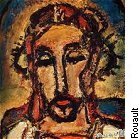
[ The following is related to our Torah reading for this week, Parashat Shemot... ]
01.18.17 (Tevet 20, 5777) The LORD said, "I have surely seen the affliction of my people who are in Egypt and have heard their cry... I know their sorrows" (Exod. 3:7). The grammar here is intense: "seeing I have seen" (רָאה רָאִיתִי). Understand, then, that God surely sees your struggles, friend. Second, know that God heeds the outcry (צְעָקָה) of your heart, and indeed, he interprets your groaning as if it were for the sake of serving him. Your heart's cry is transformed by grace to be the cry for God himself, for relationship with Him. "The cry of the people has come to me," he told Moses (Exod 3:9), which means all the sufferings, the wrongs, the hopes, the fears, the groans, the despair, the prayers, were present before him, as if he counted every word and sigh. Third, realize that God knows your sorrows; he gathers all your tears into his bottle (Psalm 56:8). The word translated "sorrows" (מַכְאב) is the same used to describe the "Man of sorrows" (אישׁ מַכְאבוֹת), Yeshua our Suffering Servant, who gave up his life to deliver you from darkness, sorrow, and fear (Isa. 53:3-5).
"If there is anywhere on earth a lover of God who is always kept safe from falling, I know nothing of it, for it was not shown to me. But this was shown - that in falling and rising again we are always kept in that same precious love. Between God and the soul there is ultimately no between." - Julian of Norwich
Empathy of Moses...

01.17.17 (Tevet 19, 5777) From our Torah portion this week (Shemot) we read: "when Moses grew up, he went out to his people and looked on their burdens" (Exod. 2:11). The sages say, "do not read, 'grew up,' but rather 'became great'" (וַיִּגְדַּל), since Moses exiled himself by opening his eyes to his people's suffering. Indeed Moses was made great as he emptied himself of his royal privilege and identified with the pain and misfortunes of others (Phil. 2:7). As is written: "By faith Moses was made great (μέγας γενόμενος) by refusing to be called the son of Pharaoh's daughter, choosing rather to be mistreated with the people of God than to enjoy the fleeting pleasures of sin" (Heb. 11:24-25).
"When Moses grew up, he went out to his people and looked on their burdens" (Exod. 2:11). Regarding this verse the great Torah commentator Rashi wrote, "Moses set his eyes and heart to feel their anguish." The midrash says that when Moses saw the hard labor of the people, he took their yoke upon him. Indeed some of the earlier sages said that sharing the burden of another is the essence of Torah, the very foundation of all heavenly obligation (Avot 6:6). Therefore the Apostle Paul wrote (Gal. 6:2): "Bear one another's burdens, and so fulfill the Torah of the Messiah (תּוֹרַת הַמָּשִׁיחַ)." Expressing empathy by identifying with the pains of others requires bittul hayesh (בִּטּוּל הַיֵּשׁ), or the setting aside of the ego, which is also the essential requirement for revelation from heaven. Hence Moses was given direct encounter with the Divine Presence because of his great humility.
In order to say, "thy kingdom come, thy will be done" you must let go of your own agenda; your ego must be deposed from its petty little kingdom... Likewise, you can't say, "Come, Lord Jesus" by putting your fear first, or by otherwise demanding that your life should center on your own personal "advent." No, you must consciously choose to live in exile to this world (Gal. 6:14). How can we ever expect the LORD to live out His life through us if we do not genuinely offer our lives to Him? And yet this is exactly the problem of the ego...
A principle of spiritual life is that we descend in order to ascend, or the "the way up is the way down." As Yeshua said, "Whoever would be first among you must be slave of all" (Mark 10:44). Becoming nothing (i.e., ayin) in this world is the condition for seeing something in the world to come. But we become nothing by trusting in the miracle, not by trying to efface ourselves... This is not another venture of the ego. Life in the Spirit means trusting that God will do within you what you cannot do for yourself... We can only take hold of what God has done for us by "letting go" of our own devices (Phil. 2:13). When we really let go and trust, we will become nothing (i.e., klume: כְּלוּם), carried by the Torah of the Spirit of life. The way is not trying but trusting; not struggling but resting; not of clinging to life, but of letting go...
"So-called pious people are unfree. They too lack the authentic certitude of inwardness. That is why they are so pious! And the world is surely justified in laughing at them. If, for example, a bowlegged man wants to be a dancing master but is not able to execute a single step, he is comical. So it is also with the multitudes who are so religious. Often you can hear the pious beating time, as it were, exactly like one who cannot dance but nevertheless knows enough to beat time, yet who are never fortunate enough to get in step. In order to reassure themselves, the pious seize upon grandiose ideas that the world hates. They battle ideas, but not with their lives. Such is the life of those who lack inwardness." - Kierkegaard (Journals)
Note: This is another example of the difficulty of truly trusting God for the miracle, of receiving the miracle... Some people scorn the idea of "easy believism," though of course there is nothing at all "easy" about exercising true faith in the LORD and living the truth in our lives. We need the miracle; we need grace from heaven to impart real passion for us to walk according to God's heart.
Casting your care upon him...

[ The following is related to our Torah reading for this week, Parashat Shemot... ]
01.16.17 (Tevet 18, 5777) "And when she (Yocheved) could hide him no longer, she took for him a basket made of reeds (תֵּבַת גּמֶא) and daubed it with bitumen and pitch. She put the child in it and placed it among the reeds by the river bank" (Exod. 2:3). The sages note that what distinguishes this makeshift "ark" (i.e., teivah: תֵּבָה) from a boat is the absence of a sail or rudder: There is no way to control its direction or outcome... Like Noah's ark, it is a vehicle completely surrendered to God's care. Likewise we must cast ourselves upon the waters of God's mercy and trust that he will guide our way (1 Pet. 5:7).
Being and Truth...

[ The following is related to our Torah reading for this week, Parashat Shemot... ]
01.16.17 (Tevet 18, 5777) In our Torah portion this week, Moses asked for God's Name, and God then said ehyeh asher ehyeh (אֶהְיֶה אֲשֶׁר אֶהְיֶה), "I AM that I AM" (or "I will be what I will be"), abbreviated simply as ehyeh (אֶהְיֶה), "I AM" (Exod. 3:14). Note that God identifies himself with being itself, since ehyeh is the Qal imperfect form of the verb hayah (הָיָה), meaning "to be." Indeed, the Name YHVH (יהוה) essentially means "Presence," since God is called ha-hoveh, ve'hayah, ve'yavo (הַהוֶה וְהָיָה וְיָבוֹא) - "the One who is, and was, and is to come" (Rev. 4:8). This "threefold Name" of the LORD of Hosts encompasses all possible states of being, indicating that God is LORD over all possible worlds...
וַיּאמֶר אֱלהִים אֶל־משֶׁה אֶהְיֶה אֲשֶׁר אֶהְיֶה
וַיּאמֶר כּה תאמַר לִבְנֵי יִשְׂרָאֵל
אֶהְיֶה שְׁלָחַנִי אֲלֵיכֶם
va·yo·mer · E·lo·him · el · Mo·she · eh·yeh · a·sher · eh·yeh
va·yo·mer · koh · to·mar · liv·nei · Yis·ra·el
eh·yeh · she·la·cha·ni · a·le·khem

"God said to Moses, "I AM WHO I AM."
And he said, "Say this to the sons of Israel,
'I AM has sent me to you'" (Exod. 3:14)

Download Study Card
Note further that the Name YHVH (יהוה) is to be forever identified as "the God of Abraham, the God of Isaac, and the God of Jacob" (אֱלהֵי אַבְרָהָם אֱלהֵי יִצְחָק וֵאלהֵי יַעֲקב), as clearly stated by God in the immediately following verse (see Exod. 3:15). This should quiet the minds of those who are troubled with determining or pronouncing "YHVH," since the Source of Life, the Creator and Redeemer of life, is clearly to be known as "the God of the fathers" of the Jewish people, as Yeshua our LORD also taught (John 4:22).
The Book of Exodus...

01.15.17 (Tevet 17, 5777) Over the next several weeks (until the end of March) we will be reading and studying the Book of Exodus (סֵפֶר שְׁמוֹת) and considering its message in light of revelation of Yeshua our Messiah (there are forty chapters in this book that are traditionally divided into eleven weekly Torah readings). Some of the greatest narratives of all the Scriptures are found in this amazing book, including the Israelites' enslavement and subsequent deliverance with the ten plagues by the hand of the LORD. After the great Passover, Moses led the people out of the land Egypt, crossing the Sea of Reeds, and arriving at Sinai to receive the Torah exactly 49 day later. While Moses was on the mountain, however, the people worshipped a Golden Calf, and a long period of repentance occurred until the covenant was reestablished. The remainder of the book describes the vision and construction of the Mishkan (Tabernacle) -- the great Altar upon which a defect-free lamb was offered every day and every night...
In English the word "Exodus" ("going out") comes from the title of the ancient Greek translation of the phrase Sefer Yetziat Mitzraim ("the book of the going out from Egypt"). Hence the Greek word ἔξοδος became "Exodus" in Latin which later was adopted into English. In the Hebrew Bible this book is called Shemot ("names"), following the custom of naming a book according to its first significant word.
Parashat Shemot - שמות

01.15.17 (Tevet 17, 5777) Our Torah reading for this week is the very first of the Book of Exodus, called parashat Shemot (שְׁמוֹת). This portion begins directly where the Book of Genesis left off, namely by listing the various "names" (shemot) of the descendants of Jacob who came to Egypt to live in the land of Goshen. Over time Jacob's family flourished and multiplied so greatly that the new king of Egypt – who did not "remember" Joseph - regarded them as a political threat and decided to enslave them. When the king's oppression did not curb their growth, however, he cruelly commanded the Hebrew midwives to kill all newborn Jewish boys. When the midwives bravely refused to obey, however, the Pharaoh commanded that all newborn boys were to be drowned in the Nile river (the Hebrew word for Egypt, Mitzrayim (מִצְרַיִם), can be rearranged to form the phrase tzar mayim (צַר מַיִם), meaning "torture through water," which was the plan of the nefarious Pharaoh).
During this time of terrible and appalling oppression, a family from the tribe of Levi bore a son and hid him for three months. When the baby could no longer be concealed, however, his mother Yocheved (יוֹכֶבֶד) set him afloat in the Nile River inside a basket, praying that he might somehow escape death. Miriam (מִרְיָם), the baby's sister, watched what would happen, and soon the basket was discovered by the daughter of Pharaoh, who decided to save the baby and adopt him as her own son. Miriam then cleverly offered to have her mother become the baby's wet-nurse for the princess. After the child was duly weaned, he was brought to Pharaoh's palace to live as the princess' son. The princess named him "Moses" (משֶׁה), meaning "drawn out" (מָשָׁה) of the water.
Later, when Moses was a full-grown man, he "went out to his people and looked on their burdens." When he saw an Egyptian beating an Israelite slave, he killed the Egyptian and hid his body in the sand. The following day he tried to reconcile two Israelites who were fighting, but the one in the wrong prophetically objected: "And who made you a prince and judge over us? Do you want to kill me as you killed the Egyptian yesterday?" Upon hearing this Moses decided to flee from Egypt to Midian. There he rescued Zipporah (צִפּרָה), the daughter of Jethro (יִתְרוֹ), a Midianite priest. Soon afterward, Moses decided to work for Jethro and married Zipporah. They had a son named Gershom (גֵּרְשׁם).
After nearly 40 years living in Midian as a shepherd, God called out to Moses from the midst of a burning bush (סְנֶה בּוֹעֵר) to commission him to lead the Israelites out of Egypt back to the land He promised to the descendants of Abraham, Isaac, and Jacob. When Moses protested that he was inadequate for this task, God gave him three "signs" to authenticate his message. God also appointed his brother Aaron to be his spokesperson. Moses and Aaron then went to the Pharaoh and demanded that the Israelites be permitted to leave Egypt to worship the LORD in the wilderness. The Pharaoh, however, dismissed Moses and his God, and increased the workload of the slaves by forcing them to make bricks without straw.
Shalom and good upon you... May we all have great joy and strength as we begin reading a new book of Torah this week. SHAVUAH TOV!
The Fear of the LORD...
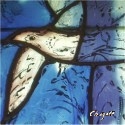
01.13.17 (Tevet 15, 5777) Some people are afraid that God will punish them for their sins, but the true fear of God, yirat shamayim (יִרְאָת שָׁמַיִם), is the tragedy of losing our closeness to Him... This is the fear of the Lord. The sages say that where it is written, "What does the LORD ask of you except to fear the LORD" (Deut. 10:12), we should read instead, "fear with the LORD" (לְיִרְאָה אֶת־יְהוָה), that is, we share his concern that we could forfeit the sanctity of a heart-relationship with Him due to carelessness and sin... We fear our sin because it blinds us from awareness of God's care and love. The fear of God can therefore be understood as God's fear that we will miss the blessing of intimately knowing him...
The LORD has promised to never leave nor forsake us, though we can choose to turn away from his love and care for our lives... We are not permitted to fear other than that we have no fear of God, for that indeed is a fearful state of soul. May it please God to help each us never to leave nor forsake ourselves by getting lost, by forgetting what is real, and by abandoning hope in the miracle for our lives... May the LORD help us not be grieved, not to hurt ourselves, and never to abandon our hearts to the despair of shame...
Loving the Stranger...

01.13.17 (Tevet 15, 5777) "You shall love the stranger as yourself" (Lev. 19:34). This mitzvah applies not only to someone whom we regard as an "outsider," but more radically to the "stranger within ourselves," that is, to those aspects of ourselves we censor, deny, or reject. Like the prodigal son, we have to "come to ourselves" to return home (Luke 15:17), yet we won't know that we are unconditionally loved until we venture complete disclosure. That is the great risk of trusting in God's love for your soul: You must accept that you are accepted despite your own unacceptability... Those parts of ourselves that we "hide" need to be brought to the light, atoned for, healed, and reconciled. If we don't love and accept ourselves, then how can we hope to love and accept others? May God grant us his healing peace in Yeshua our Beloved, chaverim. Amen and Shabbat Shalom!
Blessings of Israel...
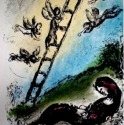
[ The following is related to our Torah reading for this week, Parashat Vayechi... ]
01.13.17 (Tevet 15, 5777) "Then Jacob called his sons and said, "Gather yourselves together, that I may tell you what shall happen to you in the end of days (בְּאַחֲרִית הַיָּמִים). Assemble and listen, sons of Jacob (בְּנֵי יַעֲקב), listen to Israel your father (יִשְׂרָאֵל אֲבִיכֶם)" (Gen. 49:1-2). Here Jacob used both his names before blessing his sons. His name "Jacob" represented his natural life – his birth as the "heel-holder" of Esau; his hunger for his earthly father's blessing; and his self-doubt as he pretended to be someone other than himself... His name "Israel," on the other hand, was given to him after he grappled with the mysterious Angel, refusing to relent until he found his blessing despite the pain of his past. "Israel" represents Jacob's rebirth, his God-given ability to father his children, and the grace to impart the appropriate blessing to each child as needed (Gen. 49:28).
The Shiloh Prophecy...
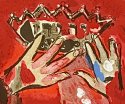
[ The following is related to our Torah for this week, Parashat Vayechi... ]
01.12.17 (Tevet 14, 5777) When the time came for Jacob (i.e., Israel) to die, he called all his sons together to bless them (Gen. 49:1-28). According to midrash, Jacob wanted to tell his sons about the "End of Days" (אַחֲרִית הַיָּמִים) when the Messiah would come, but was prevented by the Holy Spirit. According to Rashi, God prevented Jacob because He does not want anyone to know the "day or the hour" when the great King of Israel would appear. Jacob did, however, foretell that from the tribe of Judah (יְהוּדָה) would come the Messiah: "The scepter (שֵׁבֶט) will not depart from Judah, nor the ruler's staff from between his feet, until Shiloh (שִׁילוֹ) comes, and to him shall be the obedience (יקְהָה) of the people" (Gen. 49:10). Interestingly, the name "Judah" (יְהוּדָה) is spelled using all the letters of the Name YHVH (יהוה), with the addition of the letter Dalet (ד). Just as the tribe of Judah later was directly stationed in the front of the Mishkan (Tabernacle) in the camp formation in the wilderness, so the Holy Temple (i.e., Moriah) would later become part of Judah's territory in the promised land. Likewise, Yeshua Himself - a descendant of King David - was crucified and resurrected in the land of Judah. Truly the promised "Seed of Judah" represents the "doorway of the LORD" and is rightly named "the One whom his brethren would praise."
Like most prophecies in Scripture, the prophecy of Shiloh has a "dual aspect" or "double fulfillment." Shiloh, or the "King of the Jews" (a synonym for the Messiah, called "Christ" by Gentile Christendom) had indeed come "before the scepter departed from Judah," but he went unrecognized since he came to fulfill the role of the Suffering Servant (Mashiach ben Yosef). The second part of the prophecy, "and to him shall be the obedience of the people," is yet to be fulfilled. It will become a visible reality only after his Second Coming, at the end of olam ha-zeh (this present age), when Yeshua comes to judge the nations (the "sheep and the goats") and establish the Kingdom of God from David's throne in Jerusalem.
For more on this topic, see: "The Promise of Shiloh: Further thoughts on Vayechi."
Created for Love...

01.12.17 (Tevet 14, 5777) One of the great questions of life is: "What does it mean to be human?" or put another way, "Who or what am I?" This question is important because how we think of ourselves will form our vision of our greatest good and how we should live our lives. The Torah teaches that human beings are directly created by God; each of us is unique and has been imparted nishmat chayim (נִשְׁמַת חַיִּים), the sacred "breath of life." Every human being therefore owes his or her existence to the creative (and sustaining) power of God (Gen. 1:27, 2:4; Col. 1:16-17; John 1:3; Heb. 1:2). God made you in the "secret places" of the depths -- yesh me'ayin (יֵשׁ מֵאַיִן), "out of nothing" -- for His own sovereign will and purposes (Psalm 139:15, Rev. 4:11). This is implied in the name YHVH (יהוה) itself, the One who is the Source and Ground of all that exists. Unlike concepts derived from classical Greek philosophy, however, God is not an abstract and indifferent power behind the phenomenal realm, but is revealed as אֱלהֵי אַבְרָהָם אֱלהֵי יִצְחָק וֵאלהֵי יַעֲקב - "the God of Abraham, Isaac, and Jacob," the One who calls people to be in a relationship of trust with Him (Exod. 3:15). Ultimately you can only know yourself and why you exist as you embrace the truth of God and his love for you...
We are created for relationship with God, to know God and to love Him forever, but until our lives find their substance in that relationship, we remain existentially anxious and in secret dread... This relationship is more than that of knowing God as the Creator, but further as the source of your own heart, the center of your dreams, and the vision of your purpose for existence. The language of love goes beyond that of imperative: it seeks to "upbuild" the person and to elevate them to be the beloved...
Therefore people are free to accept the love God, or free to reject it, because love does not coerce but honors the individual's choice. Nevertheless - and paradoxically enough - a choice must be made, and there is no way to opt out of the call to freedom. Not choosing to receive the love of God is tantamount to rejecting that love. This is the side of the relationship that God reserves as your Creator: you are free to choose, but choose you must....
Of course the "choice" to trust is a dynamic process, an "education for eternity," wherein we learn to be healed of our divided hearts and to focus wholeheartedly on the blessing of God's personal love for us. The process is a humbling one, requiring a lifetime of teshuvah... God "demands" that you choose the good so that you can freely choose his love. We are being disciplined by heaven to learn how to order our affections and to freely exercise our will. Therefore "work out your own salvation with fear and trembling, for it is God who works in you, both to will and to work for his good pleasure" (Phil. 2:12-13).
"Unless you turn (shuv) and become like children, you will never (οὐ μὴ) enter the kingdom of heaven" (Matt. 18:3). Such is the importance of simple trust in God... Indeed Yeshua repeatedly taught us to trust God as "Abba," our Father (אַבָּא אָבִינוּ). He taught that we are warmly accepted as part of his family; that we are under his constant care; and that we live within his household as beloved children... And even though God is utterly transcendent, the Infinite One (אין סוף) and Creator of all worlds, he humbles himself to feed the birds of the air, to water lilies of the field, and to count the number of hairs on your head (Psalm 113:5-6). He is as close as your next breath; he leans upon your bosom at the table; he anticipates what you need before you ask him... The "fear of the Lord" is that you might fail knowing his great love for you -- that you will forget your true identity and lose yourself in lesser things. Therefore affirm the truth that you are loved with an unending and everlasting love, that you are safe, that you are surely accepted, and that nothing can ever separate you from the power of love. God your Father hears you, he knows you, and he loves you bekhol levavo (בְּכָל־לְבָבוֹ) - "with all his heart."
Walk in the Spirit...

01.11.17 (Tevet 13, 5777) Our hashkafah (i.e., השקפה, theological outlook) teaches that God is "omnipresent," or always present everywhere (בְּכָּל מָקוֹם), but much of the time we seem disconnected and lose touch with spiritual Reality. After all, it's one thing to "know about" God, and quite another to experience the sacred in our daily experience... Perhaps we miss detecting the Divine Presence because we are not seeing correctly (2 Cor. 5:7). We tend to "objectify" the natural world and thereby distance ourselves from the atmosphere of the Spirit and the flow of grace (i.e., ruach: "wind," "spirit"). Instead of understanding that we "live, move, and have our being" in God (Acts 17:28), we regard God as "out there," far away, and inaccessible to our reach... The Hebrew word "teshuvah" (תְּשׁוּבָה), often translated as "repentance," really means accepting the heavenly invitation to turn away from ourselves to receive God's love and grace. The Greek word "metanoia" (μετάνοια) conveys a similar idea - going "beyond" (i.e., meta: μετά) our everyday thinking (i.e., nous: νοῦς) to apprehend the realm of miracle, wonder, and love (John 6:33). We then become attuned to the Divine Presence as we turn or elevate our thinking from the realm of "this world" (olam ha'zeh) and its objectivity to one of spiritual receptivity, wholeness, and blessing (olam ha'ba). Teshuvah therefore is an (ongoing) awakening to the Reality of God, and knowing ourselves through our connectedness to the Spirit rather than objectifying ourselves and experiencing alienation and distance. Therefore הִתְהַלְּכוּ בָּרוּחַ - "walk in the Spirit" and you will be free (Gal. 5:16).
Cleaving to God...

01.11.17 (Tevet 13, 5777) Some religious traditions speak of "detachment," by which is meant "letting go" of what your ego desires... However, detachment can also mean letting go of what makes you sick – your anger, your fear, your pride, and so on. In either case, however, detachment is not an end in itself according to Torah, but a means to cleaving to a higher good. The practice of "cleaving" or "holding fast" to God is called devakut (דְּבָקוּת) in Jewish tradition, a word that derives from the root davak (דבק), meaning to "cling" or "stick" (the Modern Hebrew word for glue comes from the same root). Davak is used to describe how a man cleaves to his wife so that they become basar echad – "one flesh" (see Gen. 2:24), and is related to the word for bodily joint (debek), the bond of our bones to our skin (Job 19:20). Some have described devakut as "God consciousness imbued with love." "To cleave to Him - that means the cleaving of the mind to Him, for there is no devakut except that of the mind and the meditation of the heart" (Sh'ar ha-ahavah). Yesh ohev davek me'ach: "There is a Friend who sticks (davek) closer than a brother" (Prov. 18:4). We are able to cleave to God because He first clung to the cross in love for us (1 John 4:19; John 15:13).
For more on this topic, see "Devakut - Cleaving to the LORD."
Believing the Miracle...

01.11.17 (Tevet 13, 5777) How can you receive the blessing apart from believing in the miracle? You hunger for God's love but you hold back because you esteem yourself as unworthy, unclean, unacceptable... When you become aware of your sin and are frightened by it, you must understand it in connection with the cross of Yeshua and the divine remedy for your life. וַיהוה הִפְגִּיעַ בּוֹ אֵת עֲוֹן כֻּלָּנוּ - "The LORD has laid upon Him the iniquities of us all" (Isa. 53:6; 2 Cor. 5:21). Cast your burden upon the LORD to discover how he will take your hand, lift you up, and say "It is I; do not be afraid." Dare to surrender your fears to God and believe in the miracle of his heart for you, friend. I realize that it might sound strange to say that you should only know your sin before the presence of the cross, but that is the truth, or rather, the Truth that expresses the heart of God our Savior. The accuser likes to use "truth" as a weapon; he pronounces condemnation upon you, usurping the truth of God as Judge but denying the greater Truth of God as Deliverer. The miracle is found at the cross, where "love and truth meet; righteousness and peace kiss each other" (Psalm 85:10).
"True repentance has a distinct and constant reference to the Lord Jesus Christ. If you repent of sin without looking to Christ, away with your repentance! If you are so lamenting your sin as to forget the Savior, you have need to begin all this work over again. Whenever we repent of sin we must have one eye upon sin and another upon the Cross. Or, better still, let us have both eyes upon Christ, seeing our sin punished in Him and by no means let us look at sin except as we look at Jesus." - C.H. Spurgeon
"If there be anywhere on earth a lover of God who is always kept safe from falling, I know nothing of it - for it was not shown me. But this was shown - that in falling and rising again we are always kept in the same precious love." - Julian of Norwich
"We cannot fall beneath the arms of God. However low we fall, they are underneath us still." - William Penn
Torah of Mercy...

01.10.17 (Tevet 12, 5777) It's been said that grace is getting what you don't deserve, whereas mercy is not getting what you do... Yeshua said, "Blessed are the merciful, for they shall receive mercy" (Matt. 5:7). This is not a reciprocal law like karma, i.e., you get in return what you first give, since we cannot obtain God's mercy as reward for our own supposed merit (Rom. 4:4). No, we are able to extend mercy to others when we are made merciful ("full of mercy"), that is, when we first receive mercy from God. After all, you can't give away what you don't have, and if we have no mercy for others, it is likely that we have not received it ourselves, as the parable of the Good Samaritan reveals (Luke 10:25-8). Your forgiveness is your forgiveness: as you forgive, so you reveal your heart. What you do comes from what you are, not the other way around. We are first transformed by God's grace and then come works of love. We are able to judge others mercifully, with the "good eye," because we come to believe that we are beloved by God.
The pattern therefore abides: First you realize you are broken, impoverished of heart, and you therefore mourn over your sinful condition. Then you hunger and thirst for God's righteousness, for his healing and deliverance, and you learn to trust the mercy of God, that is, you come to accept that you are accepted despite your unacceptability. You begin to show yourself mercy; you learn to "suffer yourself" and forgive your own evil, and then you extend this mercy to others who are hurting around you... The failure to extend mercy, to demand your "rights" or hold on to grudges, implies that you are relating to God as Judge rather than as Savior (James 2:13). If we condemn what we see in others, we have yet to truly see what is within our own hearts; we have yet to see our desperate need for God's mercy for our lives. If you don't own your own sin, your sin will own you. Being merciful is a response to God's love and therefore is essential to genuine teshuvah... Ask the LORD to help you let go of the pain of the past by being full of mercy toward yourself and others.
Scandal of God's Love...

01.10.17 (Tevet 12, 5777) The message of the cross scandalizes human pride because it unconditionally declares there is nothing we can do to justify ourselves before God apart from the work of the Messiah rendered on our behalf. Human pride naturally wants to add something to the mix - by esteeming our will or our obedience to be determinative, but the Scriptures attest that we are declared righteous by trusting in the sacrifice of God for our souls, and not because of any merit of our own (Gal. 3:11). In other words, salvation is "of the LORD," and we are entirely hopeless apart the direct intervention of God for healing.... The Lord saves us, not because of works of righteousness (מַעֲשֵׂי הַצְּדָקָה) we might do, but solely on account of His mercy offered to us in Messiah our Savior (Titus 3:5).
In general, human pride has no quarrel with the theology of a transcendent, all-powerful, and holy God to whom we all owe obedience, and therefore religious systems based on "karma" are invariably amenable to human pride... A "First Cause" or a Source of Moral Law may present a religious demand upon the soul, but it presents no scandal to human reason. After all, the law of religion is simply "do what is good and you will be rewarded; do what is evil and you will be punished," and karma-based religions aim to effect a favorable "disposition" in the eyes of heaven. What is scandalous, however, and what is therefore entirely paradoxical to human reason, is that the Infinite One Himself became Finite and embodied as a human being, and that the infinitely transcendent One is also the entirely immanent One, pervading every possible world and every realm of creation -- including the "fallen" realm of humanity -- to become manifest in visage of Yeshua of Nazareth....
Again, it is relatively easy for human reason to concede awareness of a transcendental power that created the universe and who is the Source of Moral reality, but it cannot fathom how such Supreme Power could be made manifest in a state of weakness, identifying with what is most broken, most perverse, and most sick in the human soul and condition. The cross of Messiah is a scandal because human pride wants to deny the reality that humanity is incurably wounded, sick and without hope apart from divine intervention. Religious pride imagines that mankind is able to ascend the heights of heaven in its own strength, but the message of the cross is that God's love is so great that He is willing to descend - to willingly empty Himself to undergo shame, disgrace, condemnation - and indeed the horror of execution by crucifixion - all for the sake of our everlasting healing and salvation.
Do you want Torah that cuts to the bone? Do you want the raw, unvarnished truth? Then look to the cross of Messiah, the hallowed place (הַמָּקוֹם) where the transcendent, the all-powerful, and the holy are surrendered to become an object of horror, grief, and despair; where God's own glorious holiness and righteousness are exchanged for our sin... We must turn away from the urge to deny reality, by pretending that the salvation could be gained by some sort of self-improvement project, or by assuming that there exists some form of repentance that can take the place of the awful divine remedy given in our place. Turn to the cross and receive the death benefits of Messiah! "For I decided to know nothing among you except Yeshua the Messiah and him crucified" (1 Cor. 2:2).
Some people are reluctant to accept the truth of God's unconditional love because they fearfully imagine that doing so will lead to "lawlessness," or to a lax attitude that tolerates or even justifies sin. "Why not do evil that good may come?" they reason (Rom. 3:8). Such thinking grievously misunderstands the purpose of Torah, however, and fails to see that the "deeper Torah" allows us to walk in the light of God's truth. The goal (or "end") of the Torah is love - the divine love revealed in Messiah - and if we really love God, we will not seek an excuse to gratify our lower nature at the expense of our relationship with Him.
For more on this vital topic, see: "Pride and Paradox: Finding God in the Ego's Ashes..."
Ahavat Olam - Everlasting Love...

01.09.17 (Tevet 11, 5777) It is repeatedly and emphatically stated in our Scriptures that "salvation is "of the LORD" (לַיהוָה הַיְשׁוּעָה); and that we are not saved "by works of righteousness (מַעֲשֵׂי הַצְּדָקָה) that we have done, but solely on account of the mercy given to us in God our Savior (אֱלהִים מוֹשִׁיעֵנוּ; Titus 3:4-5). Grace excludes all boasting (Eph. 2:9; Rom. 4:4). We believe that God justifies the ungodly (i.e., the powerless) by trusting in his heart of compassion (Rom. 4:1-8). God loves us with "an everlasting love" (i.e., ahavat olam: אַהֲבַת עוֹלָם) and draws us in chesed (חֶסֶד, i.e., His faithful love and kindness). As it is written: "I love you with an everlasting love; therefore in chesed I draw you to me" (Jer. 31:3). Note that the word translated "I draw you" comes from the Hebrew word mashakh (מָשַׁךְ), meaning to "seize" or "drag away" (the ancient Greek translation used the verb helko (ἕλκω) to express the same idea). As Yeshua said, "No one is able to come to me unless he is "dragged away" (ἑλκύσῃ) by the Father (John 6:44). God's chesed seizes us, scandalizes us, takes us captive, and leads us to the Savior... Spiritual rebirth is a divine act, "not of blood nor of the will of the flesh nor of the will of man, but of God" (John 1:13). In everything - including human reason itself - the LORD God Almighty is preeminent.
מֵרָחוֹק יְהוָה נִרְאָה לִי
וְאַהֲבַת עוֹלָם אֲהַבְתִּיךְ
עַל־כֵּן מְשַׁכְתִּיךְ חָסֶד
me·ra·chok · Adonai · nir·ah · li
ve·a·ha·vat · o·lam · a·hav·tikh
al · ken · me·shakh·tikh · cha·sed

"The LORD appeared to me from far away.
I have loved you with an everlasting love;
therefore with lovingkindness have I drawn you."
(Jer. 31:3)

Hebrew Study Card
There is only One who offers you life, peace, and eternal healing, but it is offered on his terms, not your own. He makes you lay down in pastures of tender grass, he leads you beside the place of quiet waters (עַל־מֵי מְנֻחוֹת). He calls to your heart: "Come unto me, all you that labor and are heavy laden, and I will give you rest. Take my yoke upon you, and learn of me; for I am gentle and humble in heart: and you shall find rest for your souls. For my yoke is easy, and my burden is light" (כִּי עֻלִּי רַךְ וּמַשָּׂאִי קָל) [Matt. 11:28-30]. Thank God for the gracious love of our Savior Yeshua!
Prayer for this hour...

01.09.17 (Tevet 11, 5777) Many of us are hurting, Lord, and we sometimes feel alone in our struggle... This world seems so senseless, so brutal, and so evil at times; we feel powerless, overwhelmed, and even sick inside... We look to You, O God, and for your mercy and your power. Help us to accept what we cannot change and to completely trust in Your great healing to come, despite the depravity of the world around us. Remind us that though we cannot change the world, we are given grace to sustain our trust in You, our glorious and merciful Healer. And may we never be ashamed; may we never grow bitter; may our sorrows lead us from strength to strength. And may this time of testing lead us to greater wisdom, to deeper compassion, and finally back to You. Amen.
"The path of the righteous is like the light of dawn, which shines brighter and brighter until full day." From the first glimmer of heaven-sent faith we detect the divine light, "the light of dawn," which continues to grow more and more until it becomes as radiant as the midday, an image of the full light of the World to Come. Praise God that more light is coming to you who are trusting in the LORD, even in your present darkness: "He who began a good work in you will bring it to completion at the day of Yeshua our Messiah" (Phil. 1:6).
וְארַח צַדִּיקִים כְּאוֹר נגַהּ
הוֹלֵךְ וָאוֹר עַד־נְכוֹן הַיּוֹם
ve'o·rach · tzad·di·kim · ke'or · no·gah
ho·lekh · va'or · ad · ne·khon · hai'yom

"The path of the righteous is like the light of dawn,
which shines brighter and brighter until full day."
(Prov. 4:18)

Hebrew Study Card
Vayechi - "And He Lived"
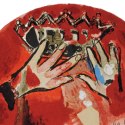
[ Our Torah reading for this week is Parashat Vayechi, the final portion from the Book of Genesis, which includes Jacob's great prophecy of the coming Messiah... ]
01.08.17 (Tevet 10, 5777) Our Torah reading for this week, parashat Vayechi (ויחי), recounts how the great patriarch Jacob adopted Joseph's two sons (Ephraim and Manasseh) as his own children. When Jacob blessed the boys, however, he intentionally reversed the birth order by putting the younger before the older, signifying that the old struggle he had faced as a child was over, and he now understood things differently. And note Ephraim and Manasseh's reaction: the older did not envy the younger, nor did the younger boast over the older. The family had apparently learned that blessing from God is for the good of all, and that there is no real blessing apart from genuine humility that esteems the welfare of others. Jacob was now ready to summon his family to hear his final words. Among other things, he foretold how the Messiah would come from the line of Judah and then instructed his sons to bury him only in the promised land, and not in Egypt.
After his death, Joseph and his brothers, with various dignitaries of Egypt, formed a funeral procession and returned to Canaan to bury Jacob in the Cave of Machpelah in Hebron. After the funeral, they returned to Egypt, but Joseph's brothers feared that he would now repay them for their former betrayal and threw themselves on his mercy. Joseph reassured them that they had no reason to fear him and reminded them that God had overruled their earlier intent by intending him to be a blessing to the whole world.
The portion ends with the account of the death of Joseph, who made the sons of Israel promise to take his bones with them when the LORD would bring them back to the land of Canaan (alluding to the great Exodus to come). Joseph's faith in the Jewish people's return to the Promised Land is summarized by his statement: "God will surely remember you." He died at age 110, was embalmed and placed in a coffin in Egypt, full of faith that he would be raised from the dead in the land promised to Abraham, Isaac, and Jacob.
Note: This Shabbat we will finish reading the Book of Genesis (סֵפֶר בְּרֵאשִׁית) for the current Jewish year... This inestimably great book begins with an account of the creation of the universe by the LORD and ends with Joseph being put into a coffin in Egypt. Note that the word translated "coffin" is the Hebrew word aron (אֲרוֹן), a word used elsewhere in the Torah to refer exclusively to the Ark of the Covenant (the ark that Noah built and the ark that Moses was placed in are both called "teivah"). Throughout their desert wanderings after the Sinai revelation, the Israelites actually carried two special arks - one holding the bones of Joseph and the other holding the tablets of the Ten Commandments.
The Fast of Tevet...

01.08.17 (Tevet 10, 5777) Today at sunrise marked Asarah B'Tevet ("the Tenth of Tevet"), traditionally recognized as day of mourning for the loss of the Jewish Temple (Bet Ha-mikdash). Orthodox Jews will fast from sunrise to sunset to commemorate the siege of Jerusalem by Nebuchadnezzar, the King of Babylon (in 587 BC) -- an event that eventually led to the destruction of the First Temple and the 70-year Babylonian Exile of the Jewish people.
In Israel, Asarah B'Tevet also marks the day Kaddish (memorial prayer) is recited for people whose date or place of death is unknown. This has resulted in a day of mourning for the many Jews who perished during the Holocaust (in addition to the formal commemoration of Yom HaShoah). Synagogue services normally include prayers of repentance (selichot) and the Torah portion recalls the story of the idolatry of the Golden Calf (i.e., Exod. 32:11-34:10).
With the terror attacks by Islamic radicals in Jerusalem today (know them by their fruits), please remember to pray for the peace of Jerusalem, chaverim...
A Blessed Hunger...
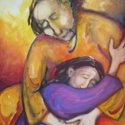
01.06.17 (Tevet 8, 5777) The first words of Yeshua recorded in John's Gospel are a question: "What are you seeking?" And the second express an invitation: "Come and see..." (John 1:38-39). The problem with many of us is not that we are so hungry, but rather that we are not hungry enough... We settle for junk food when God spreads out his banqueting table before us. There is a "deeper hunger" for life, and I pray we are all touched by such hunger pangs; there is a "blessed hunger and thirst" that feeds our heart's cry for God (Matt. 5:6); there is a "divine discontent" that leads to a deeper sense of contentment for the heart... If you are feeling empty today, ask God to feed you with His life-giving food. The Spirit of the Living God calls out, "Seek Me and live" (Amos 5:4).
כִּי כה אָמַר יְהוָה לְבֵית יִשְׂרָאֵל
דִּרְשׁוּנִי וִחְיוּ
ki · kho · a·mar · Adonai · le·veit · Yis·ra·el:
dir·shu·ni · vi·che·yu

For thus says the LORD to the house of Israel:
"Seek me and live"
(Amos 5:4)

Download Study Card
Personal Note: Shabbat Shalom friends... Please offer a prayer up for me (John, Hebrew for Christians). I have not been feeling well the last couple weeks, very exhausted, with some health concerns. Thank you so much. I send you all my love.
No Other Savior...
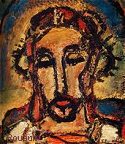
01.06.17 (Tevet 8, 5777) Though the message is for all peoples without exception, the message is exclusive in its claim and in its power: "Turn to me and be saved, all the ends of the earth! For I AM God and there is no other (כִּי אֲנִי־אֵל וְאֵין עוֹד). By myself I have sworn; from my mouth has gone out in righteousness a word that shall not return: To me every knee shall bow, every tongue shall swear allegiance" (Isa. 45:22-23). The Scriptures clearly state that "it is appointed for man to die once, and after that comes judgment" (Heb. 9:27), and they further warn that on the Day of Judgment, anyone's name not written "in the Book of Life of the Lamb who was slain" (בְּסֵפֶר חַיֵּי הַשֶּׂה הַטָּבוּחַ) will suffer eternal loss (Rev. 13:8, 20:15). Indeed, Yeshua Himself is the none other than the Judge of mankind to whom every knee shall one day bow (Isa. 45:22-23; Rom. 14:11; Phil. 2:10). Yeshua is the Judge of all the earth (John 5:22; 12:48; Acts 10:42, 17:31; 2 Thess. 1:7-10; Rev. 20:11-15), including the judge of all those who profess to obey Him (Rom. 14:12; 2 Cor. 5:10; 2 Tim. 4:1; Matt. 7:22-23). As Messianic believers, we maintain that our personal "Judgment Day" has come and justice has been served through the sacrificial offering of Yeshua for our sins (2 Cor. 5:21). He is the perfect fulfillment of the Akedah of Isaac, and the sound of the shofar recalls the sacrifice of the promised seed. However, even though we believe that we are made acceptable in God's sight solely by the finished work of the Messiah (Titus 3:5-6), we understand that we will one day face our own personal judgment. Even in the glorious light of the cross, we all must give account for our lives (2 Cor. 5:10): "Every man's work shall be made manifest: for the day shall declare it, because it shall be revealed by fire; the fire will test (δοκιμάζω) what kind of work each has done" (1 Cor. 3:13). Yeshua is the Judge of all people, both for those who are trusting in Him and for those who spurn his salvation. Turn to Him and be saved: There is no other Name, and no other Savior...
פְּנוּ־אֵלַי וְהִוָּשְׁעוּ כָּל־אַפְסֵי־אָרֶץ
כִּי אֲנִי־אֵל וְאֵין עוֹד
pe·nu e·lai vi·hiv·va·shu kol af·sei a·retz
ki a·ni El ve·ein od

"Turn to me and be saved, all the ends of the earth!
For I am God, and there is no other."
(Isa. 45:22)
Out of the Depths - ממעמקים
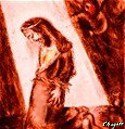
01.06.17 (Tevet 8, 5777) In the midst of his struggle, King David asked the LORD: "How long shall I take counsel in my soul, having sorrow in my heart daily?" (Psalm 13:2). There may be times when we lack eitzah (עֵצָה), or clear counsel to follow, and this can make us feel uncertain, alone, and even desperate. The sages advise in this case that you must cry out to God over and over, casting your burden upon him, and relying on Him alone... Cast your "fate" (גּוֹרָל) before the LORD, trusting in his care; unclench your fists and let go of all your desires and fears – those dark forces that hold you captive – by opening your heart to the Holy Spirit. There is no fear in God's love (1 John 4:18), and that means you are set free to confess the truth of your struggle before the One who heals and delivers you. As long as you think your own counsel will effect deliverance (יְשׁוּעָה), however, there will be "sorrow in your heart daily," since there is no salvation apart from the grace and power of God. That is why David finally affirmed, "My heart shall rejoice in Your salvation" (Psalm 13:5) rather than "my heart shall rejoice in my salvation," since salvation is of the LORD (לַיהוָה הַיְשׁוּעָה) and not from the counsel of the soul...
Glory in the LORD...

01.06.17 (Tevet 8, 5777) While on the one hand we rightly esteem and revere the Messiah as our incomparable LORD and only Savior who is entirely without any rival or equal, on the other hand we should remember that He willingly made himself "equal" with the worst of sinners by taking their place on the cross (2 Cor. 5:21). Other world religions may have some idea about the transcendence of God, but only our faith regards God's love and power as so great that it extends to all possible worlds, even touching and entering into the world of human pain, shame, guilt, abandonment, and the grief of death itself. Only our faith gives glory to God for actually entering the realm of humanity, for willingly touching the leper, for choosing to become a stranger, an outcast, a slave, for the sake of genuinely interceding for sinners and outcasts... Other religions may talk about God's compassion and immanent Presence, but only Yeshua our LORD expresses the heart and love of God for the lost soul based on divine mesirat nefesh - complete empathy and self-sacrifice.
אֲבָרֲכָה אֶת־יְהוָה בְּכָל־עֵת
תָּמִיד תְּהִלָּתוֹ בְּפִי
בַּיהוָה תִּתְהַלֵּל נַפְשִׁי
יִשְׁמְעוּ עֲנָוִים וְיִשְׂמָחוּ
a·va·ra·kha · et · Adonai · be·khol · et
ta·mid · te·hil·la·to · be·fi
badonai · tit·hal·lel · naf·shi
yish·me·u · a·na·vim · ve·yis·ma·hu

"I will bless the LORD at all times;
his praise shall continually be in my mouth.
My soul makes its boast in the LORD;
let the humble hear and be glad."
(Psalm 34:1-2)

"I will bless the LORD" (אֲבָרֲכָה אֶת־יְהוָה) – this is cohortative, meaning that it is based on a decision; it comes as a result of inwardly directing or commanding the focus of the heart... "At all times" (בְּכָל־עֵת) refers to every situation, in both prosperity and in testing; in safety and in danger; in joy and in sorrow. As it is said, gam zu l'tovah: "this too is for the good..." There is no time when God should not to be praised for the gift of life – even in the darkest of hours - and therefore an attitude of gratitude is fitting for the chasid, a person of piety and real faith. As the Bratzlover Rebbe once rightly said, "You live in paradise when you know that whatever happens to you happens for your good" (Rom. 8:28). Perfect peace comes to one whose mind is "stayed" upon the LORD in trust (Isa. 26:3).
Every moment of life is a gift given to you from above, and therefore we are indebted to the Lord for our every breath. We must learn to be mindful and awake before the Divine Presence. "At all times" means you are to consciously "know Him" in all your ways (Prov. 3:6). Like king David, "set the LORD" before your eyes (Psalm 16:8) and become alive to the wonder and glory that surrounds and upholds your very life...
The words "praise" and "boast" in this passage come from a root word (i.e., hallal: הָלַל) that means to "shine" (like a "halo"), that is, to become radiant over the goodness of God. The Targum renders, "my soul makes its boast in the LORD" (בַּיהוָה תִּתְהַלֵּל נַפְשִׁי) as "my soul boasts in the Word of the Lord," the Memra or Logos of God. The Apostle Paul undoubtedly had this in mind when he wrote of the "disguised" wisdom of the gospel message: "Let the one who boasts, boast in the Lord" (2 Cor. 1:31).
Trust in Darker Hours...

01.05.17 (Tevet 7, 5777) "Let him who walks in darkness and has no light trust in the Name of the LORD (יִבְטַח בְּשֵׁם יְהוָה) and rely on his God." Spiritual darkness is permitted by God for his own sovereign purposes, perhaps as a means to teach us to abandon ourselves to his care. Trusting in God (i.e., bittachon - בִּטָּחוֹן) does not mean that we are obligated to affirm that this is "the best of all possible worlds," though it does mean we believe that eventually God will wipe away every tear and make all things right. Bittachon is a word for this world, which says, "Though he slay me, I will trust in him..." We do not need to trust for what we is seen in this world, but for an unseen good (Rom. 8:24). Those who call upon the LORD can trust not only in concealed good behind ambiguous appearances ("all things work together for good") but also in a future, real, substantive good that will one day be clearly manifest for us all... We fight the "good fight" of faith, which is a worthy struggle that eventually is realized for blessing. Meanwhile, we pray to God to be kept from such depth of sorrow that leads to sickness, darkness and despair.
מִי בָכֶם יְרֵא יְהוָה שׁמֵעַ בְּקוֹל עַבְדּוֹ
אֲשֶׁר הָלַךְ חֲשֵׁכִים וְאֵין נגַהּ לוֹ
יִבְטַח בְּשֵׁם יְהוָה וְיִשָּׁעֵן בֵּאלהָיו
mi · va·khem · ye·rei · Adonai · sho·mei·a · be·kol · av·do?
a·sher · ha·lakh · cha·she·khim · ve·ein · no·gah · lo?
yiv·tach · be·Shem · Adonai · ve·yi·sha·en · be·lo·hav

"Who among you fears the LORD and obeys the voice of his Servant?
Let him who walks in darkness and has no light
trust in the Name of the LORD and rely on his God."
(Isa. 50:10)
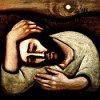
Hebrew Study Card
If you ask for bread, your heavenly Father will not give you a stone... Only God can deliver us from our "disordered loves" to take hold of what is truly essential. All we can do is ask, and keep on asking - even as we struggle on, despite ourselves, despite our losses... And we often revisit our sins over and over until we become "sick of our sickness," that is, until we begin to understand what our heart really needs. It's as if we are constantly being asked, "Is this what you want?" and our choices confess the truth... Only God does the miracle of real change within the human heart - only God can give life from the dead!
Waking Up to the Light...

01.05.17 (Tevet 7, 5777) Most people seem to sleepwalk through their days, without ever waking up... They miss life's wonder; they close their eyes to the Divine Presence; they shun asking the "big questions" because this disturbs their prejudices; indeed, they would rather be entertained, mesmerized, and rendered unconscious. Many people prefer to be put under a hypnotic spell than to be brought back to reality; they actually want their illusions and virtual lives! The first step of deliverance is to confess that we are asleep, and that we prefer sleep to opening our eyes to the truth. As it is written, "it is light that makes everything visible; therefore it says, "Awake, O sleeper, and arise from the dead, and the Messiah will shine on you" (Eph. 5:14). Arise and shine, for your light has come!
קוּמִי אוֹרִי כִּי בָא אוֹרֵךְ
וּכְבוֹד יְהוָה עָלַיִךְ זָרָח
ku·mi o·ri ki va or·rekh
ukh·vod Adonai a·la·yikh za·rach

"Arise, shine, for your light has come,
and the glory of the LORD has risen upon you."
(Isa. 60:1)

Hebrew Study Card
It is not easy to wake up, to rouse ourselves, to find focus, concentration, "kavanah," - and yet spiritually speaking it is essential. Hence Yeshua repeatedly asked his disciples: "Do you now believe?" May God have mercy upon us and help us arise to behold His glorious light!
Suffering and God's Plans...

[ The following is related to this week's Torah reading, Parashat Vayigash... ]
01.04.17 (Tevet 6, 5777) Jacob's son Benjamin (בִּנְיָמִין) served as a living link to his beloved wife Rachel (who had died earlier while giving him birth). If Jacob had initially regarded Joseph as the bechor (firstborn) of the family, Benjamin surely assumed his "coat of many colors" after his older brother was assumed to be dead. Indeed, Benjamin represented the last thread of Jacob's original vision and hope in this world. The children from Leah and the concubines were of course important to him, but Rachel always remained his first love, and after she died giving birth to Benjamin, Jacob could not help but hold him close...
In Hebrew, Benjamin means "son of my right hand" (from בֵּן, "son" + יָמִין, "right hand"), though in the Samaritan Torah the name is written as Benjamim (from בֵּן, "son" + יָמִים, "days"), meaning "son of days," perhaps alluding to the age of Jacob when Benjamin was born (Rabbinic tradition says he was 100 years old). As the last link to Jacob's deceased wife Rachel, Benjamin had taken Joseph's place as Jacob's favorite son, and Jacob was unwilling to part from him. Perhaps Jacob secretly feared that God would command him to sacrifice his "only begotten son," just as He had earlier tested his grandfather Abraham regarding his father Isaac. But wasn't the loss of Joseph enough of a sacrifice? Would he also be required to "offer up" Benjamin? Whatever he was thinking, it is clear that Jacob was unwilling to let go of his son - and his lack of trust created an abiding insecurity and heartache within him.
In last week's Torah portion (Miketz), we read that when Jacob asked the brothers to return to Egypt for more food, they said they could not do so without taking Benjamin. Jacob then replied, "Why did you treat me so badly as to tell the man that you had another brother?" (Gen. 43:6). The Midrash Rabbah (Bereshit 91:10) states that Jacob never spoke inappropriately except for here. God said, "I am busy establishing a kingdom over Egypt and Ya'akov is asking why he was treated so badly?" The LORD was busy putting all the pieces together, though Jacob could not see beyond his own personal fear and pain...
The nisayon (test) of Jacob reminds us of the principle: gam zu l'tovah (גַּם זוּ לְטוֹבָה), "this too is for good" (cp. Rom. 8:28). Notice, however, that the principle is not stated, gam zu tovah - "this is good," but rather gam zu l'tovah - "this, too, is for good." The little Hebrew preposition here (-ל) is crucial. The heart of faith does not affirm that "whatever happens, happens" and therefore we should passively accept the injustices and pain of life without any form of protest. Unlike some other religions, the LORD God of Israel does not demand slavish "submission" to His will, much less does He desire "karma-like" indifference to the suffering we see in the world (Phil. 2:4; 1 Pet. 5:7; Heb. 4:16, James 4:9, etc.). Having faith that God will one day "wipe away every tear" does not deny the existence of evil nor does it suppress real tears from being shed; however, genuine faith affirms that real (existential) comfort is coming, and that sadness, pain, and suffering will not be given the last word....
Faith (i.e., emunah: אֱמוּנָה) is a "double movement" of the heart. It both "sees what is invisible" (2 Cor. 4:18) and understands (i.e., accepts) that the "present form of this world is passing away" (1 Cor. 7:31). Faith rests in God's providential hand over the chaos and flux of creation. The eye of faith beholds the Presence of God and His reign over all the mundane affairs of this world. Indeed, it is only by fixing our hope upon the eternal that we are enabled to rightly apprehend the nature of the temporal world itself. In fact, the word emunah shares the same root as the Hebrew word for truth (אֱמֶת). In that sense, "seeing what is invisible" (τὰ μὴ βλεπόμενα) is a more fundamental type of "seeing," since the truth of hope ultimately interprets all other ways of seeing...
Emunah therefore understands temporal suffering as part of the greater purposes of God in the world. It sees beyond the painful moment and trusts that God is "busy putting all the pieces together." Everything has a reason, and that includes the seemingly trivial as well as the obviously tragic. The life of emunah calls us to live as toshavim (תוֹשָׁבִים) - sojourners - who are put at a "distance" from the world of appearances. Faith leads to a form of divine "homesickness," a cry of protest over the state of this world and its evils, and a gnawing hunger for love and truth to prevail in the world. By itself, emunah would die of intolerable heartache were it not for the gift of God's comfort. Indeed, the Scriptures describe God as Av Ha-Rachamim (the Father of mercies) and the God of all comfort:
בָּרוּךְ הוּא הָאֱלהִים אֲבִי אֲדנֵינוּ יֵשׁוּעַ הַמָּשִׁיחַ
אֲבִי הָרַחֲמִים וֵאלהֵי כָל־נֶחָמָה
ba·rukh hu ha·E·lo·him A·vi A·do·nei·nu Ye·shu·a ha·ma·shi·ach,
A·vi ha·ra·cha·mim ve·lo·hei khol ne·cha·mah

"Blessed be the God and Father of our Lord Yeshua the Mashiach,
the Father of mercies and God of all comfort" (2 Cor. 1:3)

Hebrew Study Card
The blessing continues: "who comforts us in all our affliction, so that we may be able to comfort those who are in any affliction, with the comfort with which we ourselves are comforted by God" (2 Cor. 1:4). Note that Paul links our present suffering (πάθος, pathos) with a divinely imparted comfort (παράκλησις, "paraklesis"), which he regards as a state of blessedness. God Himself "calls us to His side" (from παρά + καλέω) in the midst of our afflictions and pain.... The Greek text reads, ὁ παρακαλῶν ἡμᾶς ἐπὶ πάσῃ τῇ θλίψει ἡμῶν, and might be better rendered as, "The one calling to us [to His side] in all our tribulations" (2 Cor. 1:4). God doesn't want us to go through pain by ourselves, all alone. He invites us to come to His side for comfort... Yesh ohev davek me'ach: "There is a lover who sticks closer than a brother" (Prov. 18:24b).
The purpose of our afflictions is to learn to let go of what we value in the world in order to attain to a better hope. טוֹב־לִי כִי־עֻנֵּיתִי לְמַעַן אֶלְמַד חֻקֶּיךָ / "It was good for me that I was afflicted, that I might learn your statutes" (Psalm 119:71). God calls out to us in our tribulations so that we may turn away from our illusions and seek refuge in His Presence. Suffering is a tool that only God has the wisdom to use as a means of blessing in our lives. As A.W Tozer once wrote, "It is doubtful whether God can bless a man greatly until He's hurt him deeply," and as Charles Spurgeon likewise affirmed:
Trials make more room for consolation. There is nothing that makes a man have a big heart like a great trial. I always find that little, miserable people, whose hearts are about the size of a grain of mustard-seed, never have had much to try them. I have found that those people who have no sympathy for their fellows -- who never weep for the sorrows of others -- very seldom have had any woes of their own. Great hearts can only be made by great troubles. The spade of trouble digs the reservoir of comfort deeper, and makes more room for consolation. God comes into our heart -- He finds it full -- He begins to break our comforts and to make it empty; then there is more room for grace. The humbler a man lies, the more comfort he will always have. (Spurgeon, Consolation Proportionate to Spiritual Sufferings, 1855).
There is an "eschatological" aspect to suffering for the person of faith. Present suffering will ultimately be redeemed as soul-building, but this does not mean that we should act Stoically or admonish others to suppress their heartache. If one of us hurts, so does the rest of the body (1 Cor. 12:26). This isn't sanctimonious humbug; there's no "double talk" going on here. The most succinct verse in the New Testament on this subject is but two words: "Jesus wept" (John 11:35). Nonetheless, we can find great comfort by heeding the voice of pain as a disguised message from God. God calls to us in all our tribulations so that we might make our refuge in Him.
We all suffer and therefore we all exhibit some degree of self-pity in our lives. May God give us the courage to share our hearts with Him and to find abiding comfort in His Presence, chaverim. May it please the Lord to impart to us greater trust in His providential care and love - even in the midst of the challenges and heartaches of this life.
A Chosen Ignorance...

01.04.17 (Tevet 6, 5777) Dietrich Bonhoeffer, who was surrounded by the atrocious evil of Nazi Germany, regarded stupidity as more dangerous than outright evil, since stupidity is a type of irrationality, a chosen ignorance of what is real and true. Against such willed ignorance we are often defenseless, since reasoning that appeals to objective truth finds no traction, carries no weight, and has no effect. The devil, then, seeks first of all to stupefy people, that is, to flatter and persuade them that there is no need for them to engage in serious thinking or to humbly question their assumptions... As William James observed: "A great many people think they are thinking when they are merely rearranging their prejudices." The antidote to unthinkingly accepting the biases and inculcated prejudices of the world is to be awakened to the reality of God: "The fear of the LORD is the beginning of knowledge; but fools despise wisdom and correction" (Prov. 1:7).
יִרְאַת יְהוָה רֵאשִׁית דָּעַת
חָכְמָה וּמוּסָר אֱוִילִים בָּזוּ
yir·at · Adonai · rei·shit · da·at
chokh·mah · u'mu·sar · e·vi·lim · ba·zu

"The fear of the LORD is the beginning of knowledge;
but fools despise wisdom and correction."
(Prov. 1:7)

The ground of all right thinking about reality is "wonder," or the sense that life itself is something mysteriously beautiful, amazing, and therefore inherently sacred. This is sometimes called yirat Adonai (יִרְאַת יְהוָה), "the fear of the LORD" that leads to wisdom. Right thinking therefore begins with consciousness of the good (הַכָּרַת טוֹבָה), that is, with an awareness that life itself a gift, a mystery, and a hallowed question... We seek our origin, our essence, and our purpose -- and in our seeking we seek the LORD. We long for deliverance from what keeps us from healing, from love, from real hope. And as we seek, the wonder of the LORD God never ends. As Yeshua said, "Ask, and it will be given to you; seek, and you will find; knock, and it will be opened to you" (Matt. 7:7).
Good Eye of Faith...
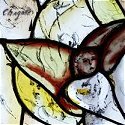
01.04.17 (Tevet 6, 5777) Among other things, the story of Joseph reveals how God's hidden hand moves for good in our lives. Despite the terrible betrayal of the pit, and the unjust suffering of the prison house, there was light, exaltation, and joy to come forth. God knows how to take our emptiness to yield "storehouses in Egypt..." As Joseph later told his brothers, "you meant evil against me, but God meant it for good" (Gen. 50:20). Resist the temptation to judge by mere appearances. Forbid your sorrow to blind the eyes of faith. Do not unjustly judge God's purposes or try to understand His ways; accept that He works all things together (συνεργέω) for good -- making even the very wrath of man to praise Him...
Faith "sees what is invisible" (2 Cor. 4:18) and understands (i.e., accepts) that the "present form of this world is passing away" for purposes that are good (1 Cor. 7:31). It affirms that underlying the surface appearance of life (chayei sha'ah) is a deeper reality (chayei olam) that is ultimately real, abiding, and ultimately designed for God's redemptive love to be fully expressed. In this world we must "see through" a mirror (i.e., indirectly) to begin to see the dawn of our eternal home; but one day we will behold God panim el panim (פָּנִים אֶל־פָּנִים), "face to face" (1 Cor. 13:12). In the meantime, faith beholds the invisible light, the truth of God's love that overcomes all the powers of darkness, hate, and fear.... "I believe. I believe in the sun even when it is not shining; I believe in love even when feeling it not; and I believe in God, even when God is silent" (from an anonymous poem found on the wall of a cellar in Cologne, Germany, where some Jews hid from the Nazis).
"Faith in divine providence is the faith that nothing can prevent us from fulfilling the meaning of our existence. Providence does not mean a divine plan by which everything is predetermined, as in an efficient machine. Rather, providence means that there is a creative and saving possibility implied in every situation, which cannot be destroyed by any event. Providence means that the demonic and destructive forces within ourselves and our world can never have an unbreakable grasp upon us, and that the bind which connects us with the fulfilling love can never be disrupted." - Paul Tillich
For more on this important topic, see "Joseph and the Good Eye."
Chanukah Sameach!
Prophecy and Providence...

[ Our Torah reading for this week is parashat Vayigash... ]
01.04.17 (Tevet 6, 5777) Though Jacob's son Joseph was given great prophetic wisdom to interpret Pharaoh's dreams and to serve as Egypt's regent, his foresight did not prevent the famine from coming in the first place, and the testing that came was part of God's hidden plan. The role of the true prophet is to bear witness to God's truth and to shepherd God's people through the unfolding vision. Joseph could not control the outcome, though he worked within the context of revelation to bring about deliverance. In both the "fat times and the lean" we look to God for comfort and strength: We "show up" every day to ready ourselves for what is coming, even if we currently find ourselves in darkness. We refuse fear because we trust that the LORD our God is guiding our way...
The term hashgachah pratit (הַשְׁגָּחָה פְּרָטִית) refers to God's personal supervision of our lives (hashgachah means "supervision," and pratit means "individual" or "particular"). Since He is the Master of the Universe, God's supervision and providence reaches to the smallest of details of creation - from subatomic particles to the great motions of the cosmos. God not only calls each star by its own name (Psalm 147:4), but knows each particular wildflower and sparrow (Matt. 6:28-30, 10:29). Each person created in the likeness of God is also under the personal supervision of God, and even the hairs on your head are all numbered (Matt. 10:30). The God of Israel is also called אלהֵי הָרוּחת לְכָל־בָּשָׂר / Elohei ha-ruchot lekhol-basar: "The God of the spirits of all flesh" (Num. 16:22), and that means that he has providential purposes for every human being brought into this world (John 1:4).
 |
The Revelation of Joseph...
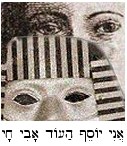
[ The following is related to this week's Torah reading, Parashat Vayigash... ]
01.03.17 (Tevet 5, 5777) According to midrash (i.e., ancient Jewish commentary), just before Joseph revealed his true identity he turned to his brothers and said, "You told me that your brother Joseph died. Are you sure?" "Yes, we are; he's dead," the brothers replied. Joseph then became angry and said, "How can you lie? You sold him as a slave. I bought him myself and can call him right now." Joseph then called out, "Joseph, son of Jacob, come here right now to speak to your brothers." Terrified, the brothers turned to see if Joseph was coming....
When he overheard his brothers contritely preparing to meet their brother and to humbly ask for his forgiveness, Joseph then looked at them and said in a loud voice: "Who are you looking for? אֲנִי יוֹסֵף הַעוֹד אָבִי חָי - I am Joseph! Is my father still alive?" (Notice that Joseph revealed himself to his brothers using Hebrew speech as the token of his identity.) When he saw his brothers draw back in fear at his shocking disclosure, Joseph reassured them by saying, ge'shu na elai - "Please come near to me; come and see..."
On a p'shat level (i.e., literal sense), when Joseph revealed his identity he was asking his brothers if his father Jacob was still physically alive (ani Yosef - ha'od avi chai: "I am Joseph; is my father still alive?"). This is puzzling, since in earlier encounters the brothers attested that Jacob was very much alive... On a sod level (i.e., in a mysterious sense), since Joseph is a picture of Yeshua (Mashiach ben Yosef), the question can be phrased, "I am Yeshua - is My father alive?," that is, do you now understand the righteousness of God the Father in raising me from the dead and promoting me to His right hand? Yeshua therefore evokes the confession of faith from the beloved Jewish people: "I am your brother Yeshua: do you now understand that My Father is alive?"
Note: For more on this fascinating topic, see "The Disguised Egyptian." Also consider the Purim pages and the relationship between "hiding" and "revealing" in our lives.
A Providential Passion...

01.03.17 (Tevet 5, 5777) "The LORD will perfect that which concerns me: your love, O LORD, endures for ever: forsake not the works of your own hands" (Psalm 138:8). Here is the confession that all that I am or ever hope to be comes entirely from God, and therefore we can take heart. The LORD will finish the work he has begun in you: "Fear thou not, for I AM with you; be not dismayed, for I AM thy God; I will help you; yea, I will strengthen you, yea, I will uphold you with the right hand of my righteousness" (Isa. 40:10). Understand that the LORD's purposes are sure and his promises will invincibly be fulfilled, "for his lovingkindness is infinite" (כִּי לְעוֹלָם חַסְדּו). God will never forsake you nor abandon the work of his hands, but will providentially preserve his handiwork and consummate his vision of love (John 17:22; Eph. 1:10). Amen, "He who began a good work in you will bring it to completion for the Day of Yeshua the Messiah" (יוֹם יֵשׁוּעַ הַמָּשִׁיחַ, Phil. 1:6). "Now to him who is able to keep you from stumbling and to present you blameless before the presence of his glory with great joy, to the only wise God our Savior (μόνῳ σοφῷ θεῷ σωτῆρι ἡμῶν), be glory, majesty, dominion, and authority, before all time and now and forever. Amen" (Jude 1:24-25).
יְהוָה יִגְמר בַּעֲדִי
יְהוָה חַסְדְּךָ לְעוֹלָם
מַעֲשֵׂי יָדֶיךָ אַל־תֶּרֶף
Adonai · yig·mor · ba'adi
Adonai · chas·de·kha · le'olam
ma'a·sei · ya·de·kha · al-te·ref

"The LORD will perfect that which concerns me:
Your love, O LORD, endures forever:
forsake not the works of thine own hands"
(Psalm 138:8)

From our Torah portion this week we read: "God sent me before you to preserve you..." (Gen. 45:7). The mercy of God goes ahead of you to prepare a place for you (John 14:2). We may not know the details of our journey, but the "how" and the "way" is promised to us, as is our ultimate destination – the heavenly place of God, the Presence of our Beloved...
The Kingdom of Love...
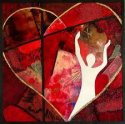
01.03.17 (Tevet 5, 5777) While it is vital to understand and appreciate the Jewish roots from which the gospel message sprang up and was delivered to us (Gal. 4:4-5; John 4:22; Rom. 3:1-2; 9:1-5), we must be careful not to lose sight of the central message itself as we endeavor to do so! The Jewish Scriptures – the Torah of Moses, the sacred writings, and the witness of the Hebrew prophets -- were intended to be the means to the greater end of the revelation of God in Yeshua, the promised Seed of Abraham and Jewish Messiah (Luke 24:25-27; 24:44; John 5:46; Heb. 1:1-2, Rom. 10:4). And just as it is an exegetical and logical error to read the New Testament without first understanding its Jewish theological context given in the Torah, so it is an exegetical error to read the Torah without bearing in mind the ultimate goal and point of the redemption of God, namely, that deliverance and healing from the lethal disease of spiritual death was to secured for all nations, tongues, and tribes, as Abraham was promised: וְהָיִיתָ לְאַב הֲמוֹן גּוֹיִם – "You shall be a father to a multitude of nations" (Gen. 17:4). We are warned not to be "arrogant toward the (original) branches; since it is not you who support the root, but the root that supports you" (Rom. 11:18), and yet we must humbly affirm the truth that God's love and mission is greater than tribal interests, and that the LORD God of Israel is the Savior and Healer of the whole world.
פְּנוּ־אֵלַי וְהִוָּשְׁעוּ כָּל־אַפְסֵי־אָרֶץ
כִּי אֲנִי־אֵל וְאֵין עוֹד
pe·nu e·lai vi·hiv·va·shu kol af·sei a·retz
ki a·ni El ve·ein od

"Turn to me and be saved, all the ends of the earth!
For I am God, and there is no other."
(Isa. 45:22)
The Beauty of Truth...

01.02.17 (Tevet 4, 5777) It has been said that the Greek mindset regards what is beautiful as what is good, whereas the Hebraic mindset regards what is good as what is beautiful. The difference is one of orientation. Doing our duty before God, in other words, is what is truly beautiful, not merely appreciating the appearance of symmetry, order, and so on. This explains why moral discipline (i.e., musar, מוּסָר) is so prominent in Hebrew wisdom literature. True beauty cannot exist apart from moral truth.
Some of the Jewish sages have said that "the seal of God is truth," since the final letters of the three words that conclude the account of creation: בָּרָא אֱלהִים לַעֲשׂוֹת / bara Elohim la'asot: "God created to do" (Gen. 2:3) -- spell the word for truth (i.e., emet, אֱמֶת):
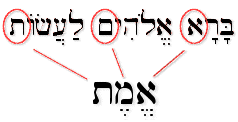 |
In other words, God created reality "to do" (לַעֲשׂוֹת), which means that it is our responsibility, as God's creatures, to participate in the "doing" of His work. Truth is about doing, not being; God's Name is the Loving One, which is means that works of love are essential to his nature.
Note that the "Seal of God" (i.e., truth) is not just a matter of sincerity. It is rather a matter of being true in the sense that you are living it, you are "being with it," you are part of it. Truth is a passion that informs all of the decisions you make in your life. You therefore embody the truth and follow it in all your endeavors. In this sense Yeshua the Messiah is the Truth, since in Him there was no mismatch between who He is and what He says. He is utterly trustworthy. His actions and speech are one and are entirely reliable. Yeshua is the "Seal of God," the one who authoritatively names of all creation, and His followers likewise should evidence this in their lives. (For more, click here.)
Love and "True" Truth...

01.02.17 (Tevet 4, 5777) Though we love and honor truth, we must be careful not to use it as a weapon to judge or wound others... If God has given you insight and understanding, you will be held to account for how you use this gift (James 3:1; Luke 12:48). If you attempt to "lord your knowledge" over others, however, being "puffed up" in your conceits, then be assured you will be humbled in the end (1 Cor. 3:18). The LORD God resists the proud but gives grace to the humble (James 4:6;1 Cor. 8:1). Truth is the means to the greater end of love, since love heals untruth and embraces the deeper meaning of what is real. Truth devoid of compassion is untruth, even if were to account for all the facts. However, no "fact" can be known apart from a context, and for the believer in God's healing love, that context is always known in hope (1 Cor. 13:7). Faith is the primary category, and faith is expressed in the anticipation of the unseen good ("eschatological" truth) that is conditioned and known by God's blessing and love. As it is written: "For we know in part and we prophesy in part, but when the perfect comes, the partial will pass away" (1 Cor. 13:9-10).
None of this is to remotely suggest that truth is unimportant for us, of course, since we are "epistemologically" responsible to know and love the truth, just as Yeshua is the King of Truth, the "Great Amen" of Reality (Rev. 3:14; 2 Cor. 1:20). The LORD is the God of Truth (Deut. 32:4). We are to seek the truth of God and walk in the divine light (John 8:32; Isa. 2:5). However, a common tactic of the evil one is to divide what God intends to bring together, and therefore it is a shame that the pride of man creates enmity and distance for the sake of petty (and often specious) differences in faith. I realize it is not easy to bear witness to your passionate convictions and yet be tolerant of others' misconceptions, false theologies, and so on, and yet what choice do we have as followers of the LORD? Loving others is not optional for us as children of God... When we humble ourselves in God's sight, he will lift us up so that can then testify of his love and grace within our own lives. The focus must always be directed away from the ego to that of the LORD and his beauty. Truth in our hearts serves the end of worship – it enshrines God's glory within us, enabling us to share the blessing of his compassion to others. Truth is all-powerful when it is expressed "truthfully," but when it is expressed untruthfully it is empty of any real significance.
True words and actions performed in an unloving or spiteful manner are morally blameworthy, and are therefore "untruth" before the bar of heaven... Dietrich Bonhoeffer (1906–1945) tells the story about how a teacher once humiliated one of her students by standing him up in front of the class to ask whether his father -- notoriously known as the town drunk -- had been out drinking the night before. The little boy knew the accusation was true but bravely announced "No." When the teacher mockingly asked him again, pressing him for "the truth," the boy was adamant: "NO!" Bonhoeffer's comment was that this little boy spoke more truth by his lie than if he had merely reported the "facts" to the class -- and thereby betrayed the dignity of his father... The truth is not some objective state of affairs that can be reported dispassionately. Indeed, without love as its context, such "truth" becomes a lie. Satan keeps his own books.
Sacralizing our Days...
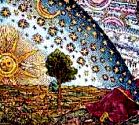
01.02.17 (Tevet 4, 5777) "Teach us to number our days, that we may apply our hearts unto wisdom" (Psalm 90:12). Each soul is given a finite amount of time in this world, and therefore Moses asked God to teach us how to live in light of our ultimate end... For this we need wisdom, which primarily consists of knowledge of the holy (דַעַת קְדשִׁים) and the experience of the awe of the LORD (יִרְאַת יְהוָה, Prov. 9:10). Note then the connection between learning to "number our days" and apprehending the sacredness of life. As we learn to esteem our days, so we discover wisdom for our sojourn to eternity. Reflecting on the brevity of life awakens us to consciously reflect upon the course of our lives and to distill the ultimate concerns of our hearts. After Adam sinned in the Garden, he vainly tried to hide himself until he heard the Voice of God calling out: אַיֶּכָּה - ayeka? – "Where are you?" That is the question for each soul as we learn to discern the direction of our lives. Where are you today, and where are going? Our days are numbered, friend, and it is of utmost importance to apply our hearts unto wisdom while we still have the time and strength to do so. "No one knows the day or hour..." May God help us to learn how to make our days count for eternity, to have a weight of glory that will shine in the world to come. Amen.
לִמְנוֹת יָמֵינוּ כֵּן הוֹדַע
וְנָבִא לְבַב חָכְמָה
lim·not · ya·me·nu · ken · ho·da
ve·na·vi · le·vav · chokh·mah

"Teach us to number our days
that we may apply our hearts unto wisdom."
(Psalm 90:12)

Hebrew Study Card
Notwithstanding the frailty and brevity of our days, may it please God to shine the power of His radiance upon us and to establish our works for His praise: "May the beauty of the LORD our God be upon us and establish the work of our hands upon us; yes, establish the work of our hands" (Psalm 90:17). May the LORD our God teach us to "number our days" so that we may obtain levav chokhmah (לְבַב חָכְמָה) - a heart of wisdom to live according to His will (James 1:5). And above all else, may the "God of our Lord Yeshua the Messiah, the Father of Glory (אֲבִי הַכָּבוֹד), impart to you a spirit of wisdom and of revelation in the knowledge of Him, having the "eyes of your hearts" (ὀφθαλμοὺς τῆς καρδίας) enlightened, that you may know what is the hope to which he has called you" (Eph. 1:17-18). May you be strong, resolute, and fully focused on our LORD, chaverim. Amen.
The Revelation of Joseph...

[ Our Torah reading for this week is parashat Vayigash... ]
01.01.17 (Tevet 3, 5777) In our Torah portion this week, Benjamin stood before Joseph accused of the theft of a chalice, while Judah "drew near" (vayigash) and vicariously offered to bear the penalty for his brother, pleading with Joseph to spare his father the loss of yet another son. Joseph was so moved by Judah's act of mesirat nefesh (self-sacrifice) that he decided the time had finally come for him to reveal his identity to his brothers. After clearing the room, he began speaking in Hebrew and said, אֲנִי יוֹסֵף הַעוֹד אָבִי חָי, "I am Joseph, is my father still alive?" When the brothers drew back in shock and dismay, Joseph said, "Draw near to me, please" (from the same verb nagash) and then explained how God providentially brought him to Egypt to save the family's life....
The revelation of Joseph and his reconciliation with his brothers is a prophetic picture of the acharit hayamim (end of days) when the Jewish people will come to understand that Yeshua is indeed the One seated at the right hand of the majesty on high as Israel's Deliverer. At that time Yeshua will speak comforting words to His long lost brothers and restore their place of blessing upon the earth. Indeed, the entire story of Joseph is rich in prophetic insight regarding our Lord and Savior. Vayigash (וַיִּגַּשׁ) means "and he drew near," referring first to Judah's intercession for the sins of his brothers, and then to Joseph's reciprocal desire for the brothers to draw near to him (Gen. 44:18, 45:4). Joseph initiated the reconciliation by saying, גְּשׁוּ־נָא אֵלַי / g'shu na elai - "Please draw near to me," and indeed there is a play on the verb nagash (נָגַשׁ), "draw near," throughout this story. Yeshua is depicted both in Judah's intercession (as the greater Son of Judah who interceded on behalf of the sins of Israel) and in Joseph's role as the exalted Savior of the Jewish people in time of tribulation. When Joseph disclosed himself and asked, "Is my father alive," we hear Yeshua evoking the confession of faith from the Jewish people: "I am Yeshua: do you now understand that My Father is alive?" Upon His coming revelation, all Israel will confess that indeed God the Father is "alive" and has vindicated the glory of His Son.
Rosh Chodesh Tevet...
Last Friday was Rosh Chodesh Tevet, which marks the 10th month of the Torah's calendar (counting from the first month of Nisan). This was the fateful month that Nebuchadnezzar king of Babylon besieged Jerusalem before the Temple was destroyed in 586 BC (2 Kings 25:1; Jer. 39:1; Ezek. 24:1-2). The name of the tenth month is explicitly called Tevet (טֵבֵת) in the Scriptures (see Esther 2:16). Rosh Chodesh Tevet is sometimes observed as one day and sometimes as two, because the preceding month (Kislev) is sometimes "full" (consisting of 30 days) and sometimes deficient (consisting of only 29 days). With a two-day Rosh Chodesh, the first day is the 30th day of the preceding month (i.e., Kislev 30th), and its second day is the first day of the following month. Chodesh Tov, chaverim!
|



